20 Best Sunscreens for Every Concern, Tested and Reviewed
Marie Claire editors won’t step in the sun without these SPFs.
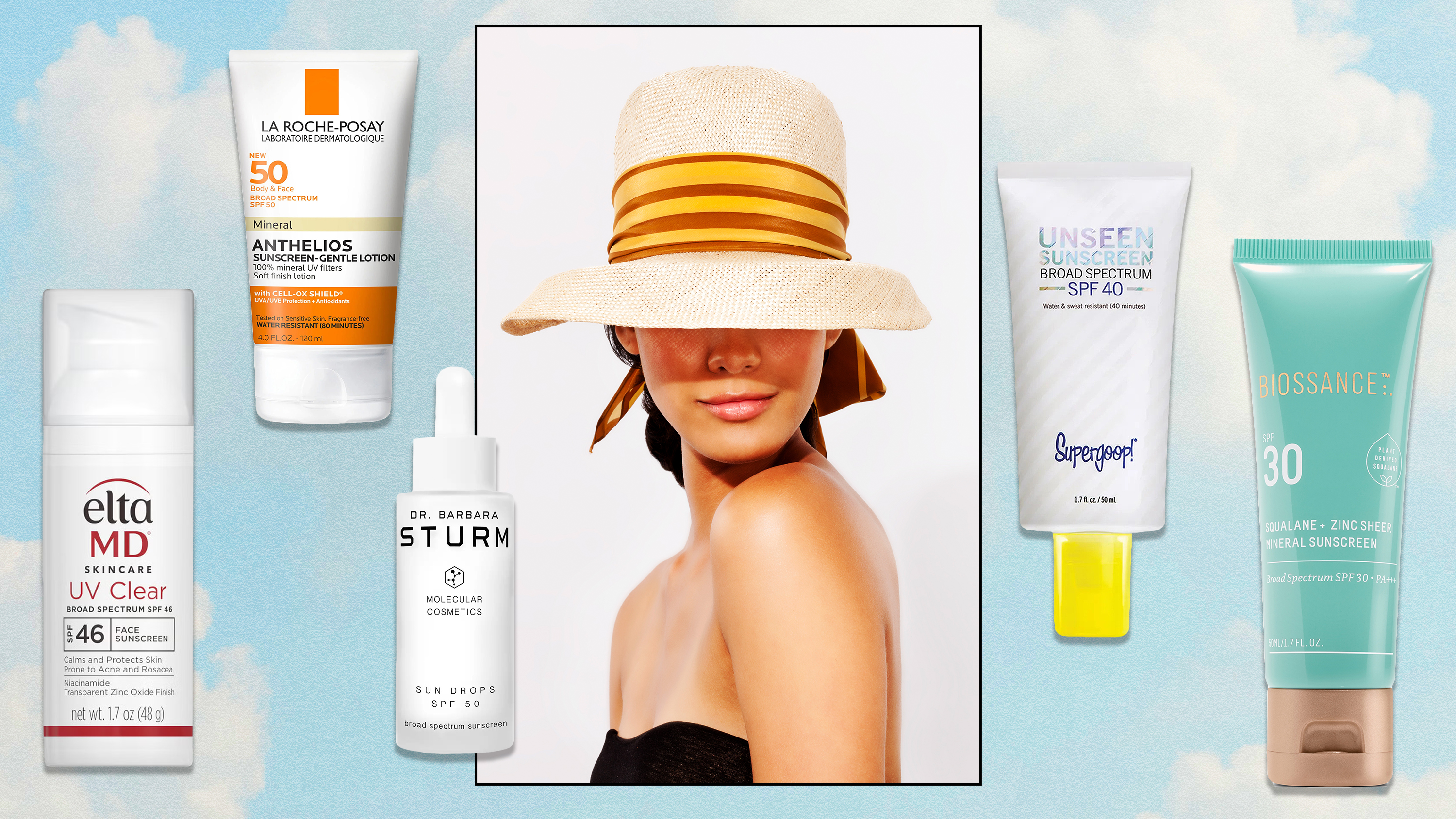

I know firsthand that finding the best sunscreen is a daunting shopping journey. At baseline, I need an SPF product to protect my skin from UVA and UVB rays, defend against skin cancer, and prevent sun spots, wrinkles, and fine lines. But I’m a big believer that you shouldn’t have to sacrifice formula for function, so I selfishly also want a sunscreen for acne-prone skin that won't break me out, a body sunscreen that will give my legs a gorgeous glow, and a tinted moisturizer with SPF that will replace my need for foundation in the summer heat.
Other Marie Claire editors have different concerns. Beauty Director Deena Campbell expects one of the best sunscreens for darker skin tones, Beauty Writer Gabrielle Ulubay wants an oil-free sunscreen that will hold up in humidity, and Senior Fashion and Beauty News Editor Halie LeSavage is committed to trying 2024 new sunscreen launches for the sake of research.
Given team MC’s collective love for the best face and body sunscreens, we have spent the summer diligently testing SPFs. They’ve accompanied us to Turks & Caicos, Punta Cana, and beaches stateside. We also tapped board-certified dermatologists Melissa Kanchanapoomi Levin, MD FAAD, Naana Boayke, MD FAAD, and Laura Scott, MD FAAD, to share everything you need to know about shopping (and applying!) SPF. Here, you’ll find the best sunscreens for every skin type, concern, and finish—vetted by dermatologists and beauty editors.
The Best Sunscreens for Your Face
- Best Sunscreen Overall: Cle de Peau Beaute UV Protective Cream SPF 50+
- Best Chemical Sunscreen: Supergoop! Unseen Sunscreen Broad Spectrum SPF 40 PA+++
- Best Mineral Sunscreen: Biossance Squalane + Zinc Sheer Hydrating Mineral Face Sunscreen SPF 30
- Best Sunscreen for Oily Skin: EltaMD UV Daily Broad-Spectrum Facial Sunscreen SPF 40
- Best Sunscreen for Dry Skin: Cay Skin Isle Glow Face Sunscreen Moisturizer SPF 45
- Best Sunscreen for Sensitive Skin: Shiseido Ultimate Sun Protector Lotion SPF 60+
- Best Sunscreen for Dark Skin Tones: Bloomeffects Tulip Dew Shield & Glow 100% Sheer Mineral Sunstick SPF 50
- Best Luxury Sunscreen: La Mer The Broad Spectrum Face Sunscreen SPF 50
- Best Sunscreen for Everyday: Revision Skincare Intellishade TruPhysical
The products on this list have been vetted by Marie Claire's Beauty Editor, Samantha Holender (that's me!) and Marie Claire's Beauty Director, Deena Campbell; or have been hand-selected by a board-certified dermatologist. Each and every one includes ingredients clinically proven to protect against UVA and UVB rays, is highly rated by reviewers, and has an SPF over 30. While the *best* sunscreen for you will vary based on personal preference, skin type, and skin tone, you truly can't go wrong with one of the items on this list. For a more personalized recommendation or if you have any concerns, check with your board-certified dermatologist.
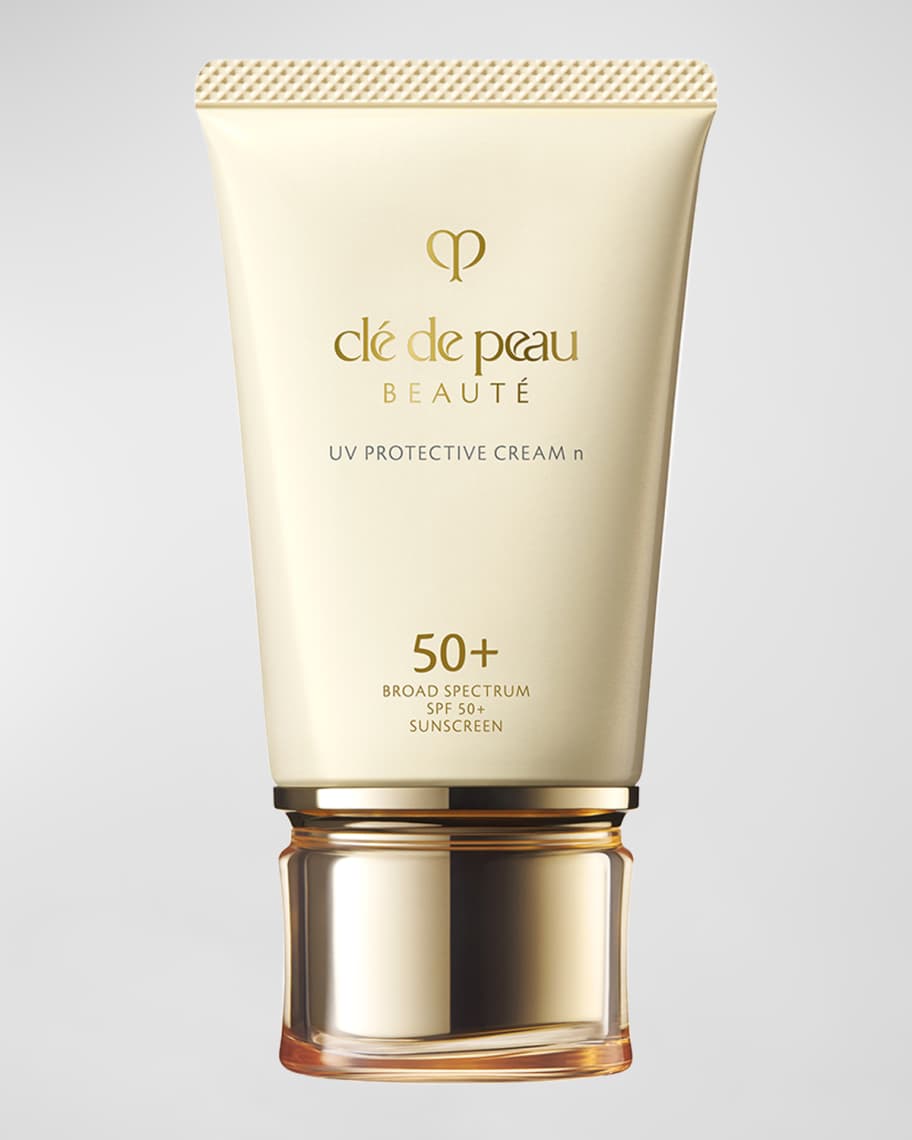
You probably know Cle de Peau best for their concealer (it’s one of the best for mature skin), or maybe their luxury foundation. But believe me when I tell you to pay extra special attention to their sunscreen offerings. This particular option is the single best face sunscreen I have ever tried in my three decades of life. It has a luxe price point, but the silky formula is worth every penny. The texture glides onto the skin and leaves a luminous glow behind that catches the light at every corner. It contains vitamin C to protect from environmental stressors and doubles as a makeup primer, all while providing SPF 50 protection. Plus, it protects against UV rays, pollution, and blue light.
What We Love: No white cast; gorgeous texture; hydrating formula; a little glowy without being greasing; great under makeup
What We Don’t: Very high price point
SPF: 50+
Type: Chemical
Active Ingredients: Purpose Octinoxate 7.4 percent, Octocrylene 3 percent, Zinc Oxide 16.4 percent
Color: Beige to clear
Texture: Cream
Review for MC: “I always struggled to find a solid face sunscreen. It was a never-ending search to be glowy, not greasy, avoid pilling, and keep hydration locked in. I found a few that did the job, but it wasn’t until I started using this product that I actually started not just to enjoy sunscreen application—but become obsessed with it. Seriously—it’s become a running joke how much I love this SPF. It leaves a subtle pearlescent glow on my face and locks in moisture all at once. I love how it layers under makeup, but I’m the queen of wearing this solo, too. It provides a subtle blurring filter that makes pores look smaller, and skin airbrushed.” — Samantha Holender, Beauty Editor
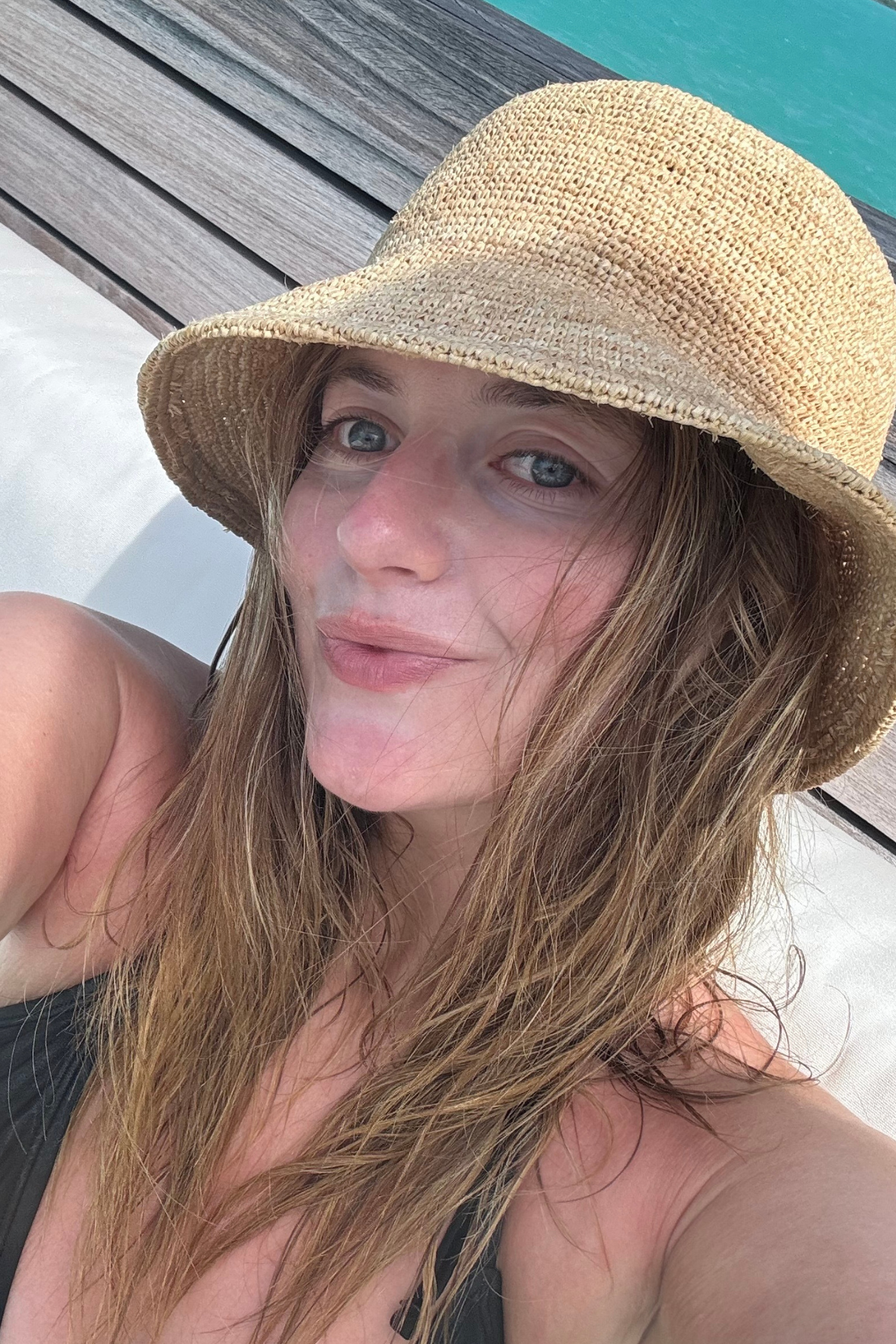
Samantha wears this Cle de Peau sunscreen on vacation in Turks and Caicos.
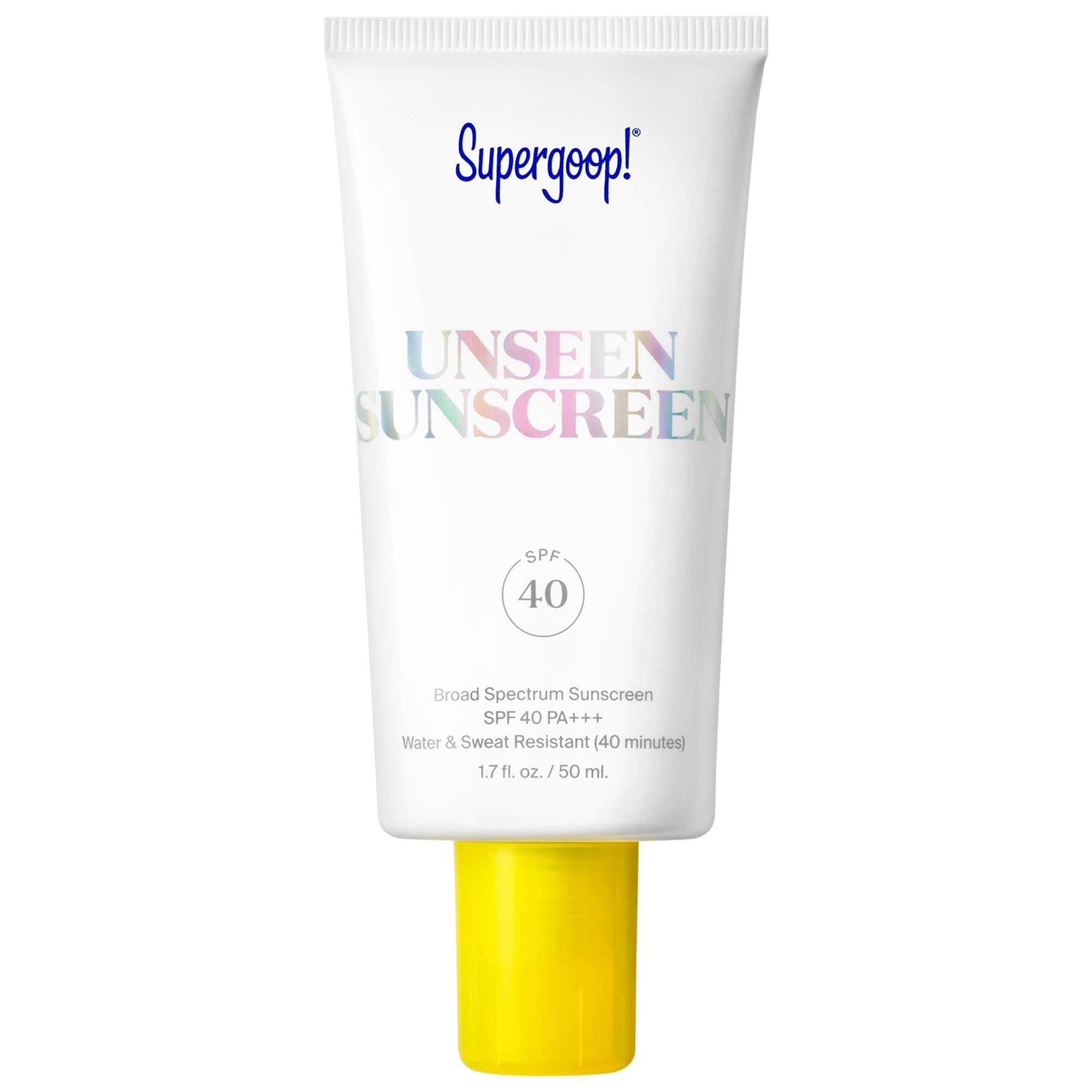
SPF haters, meet your new favorite sunscreen. The totally clear gel disappears into the skin as soon as you smooth it on and won't leave a cast on deeper skin tones. It's also free of fragrance, common irritants, and oil—all the stuff you'd usually use as an excuse not to wear sunscreen. Basically, it's the most pared-down, nothing-to-see-here, obsession-worthy formula.
What We Love: No white cast; lightweight texture; fragrance-free; grippy under makeup
What We Don’t: Some people with sensitive skin report irritation
SPF: 40
Type: Chemical
Active Ingredients: Avobenzone 3 percent, Homosalate 8 percent, Octisalate 5 percent, Octocrylene 4 percent
Color: Clear
Texture: Gel
Review for MC: “I was really, really excited to try Supergoop. It's difficult to get me to try a new sunscreen (I'm a La Roche-Posay girlie), and even more difficult to get me to try a non-mineral sunscreen. I have extremely reactive skin—think: rosacea, acne, and inflammation—so my expectation was that chemical sunscreen might make me break out. I was absolutely wrong. My skin didn't react in the slightest: first, I put it on a small section of my forearm. Nothing. Then, I went all in, plastering my face, ears, and neck. Nothing! It goes on smoothly and feels incredibly lightweight without any of the annoyances of most sunscreens. Since then, it's come with me in my purse every single day. I can put it on anytime, including over my makeup. I've even used it on my arms and legs when I'm unexpectedly walking to a destination and need light coverage. This is one of those delightful surprises that takes me from "I'm not sure, maybe I'll try it" to "I use it every single day." — Katherin J. Igoe, Contributing Editor
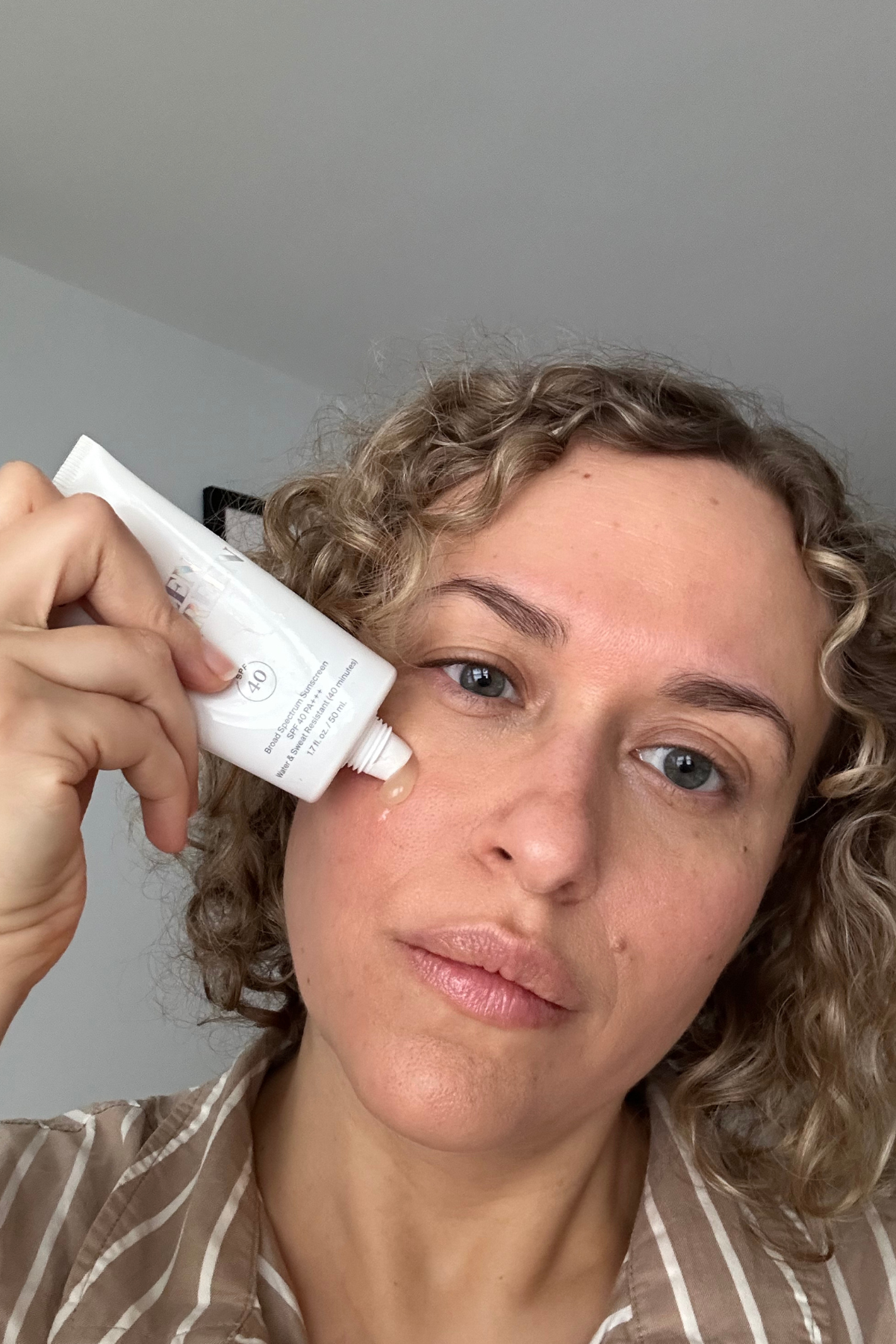
Katherine loves this Supergoop! sunscreen for its lightweight feel.
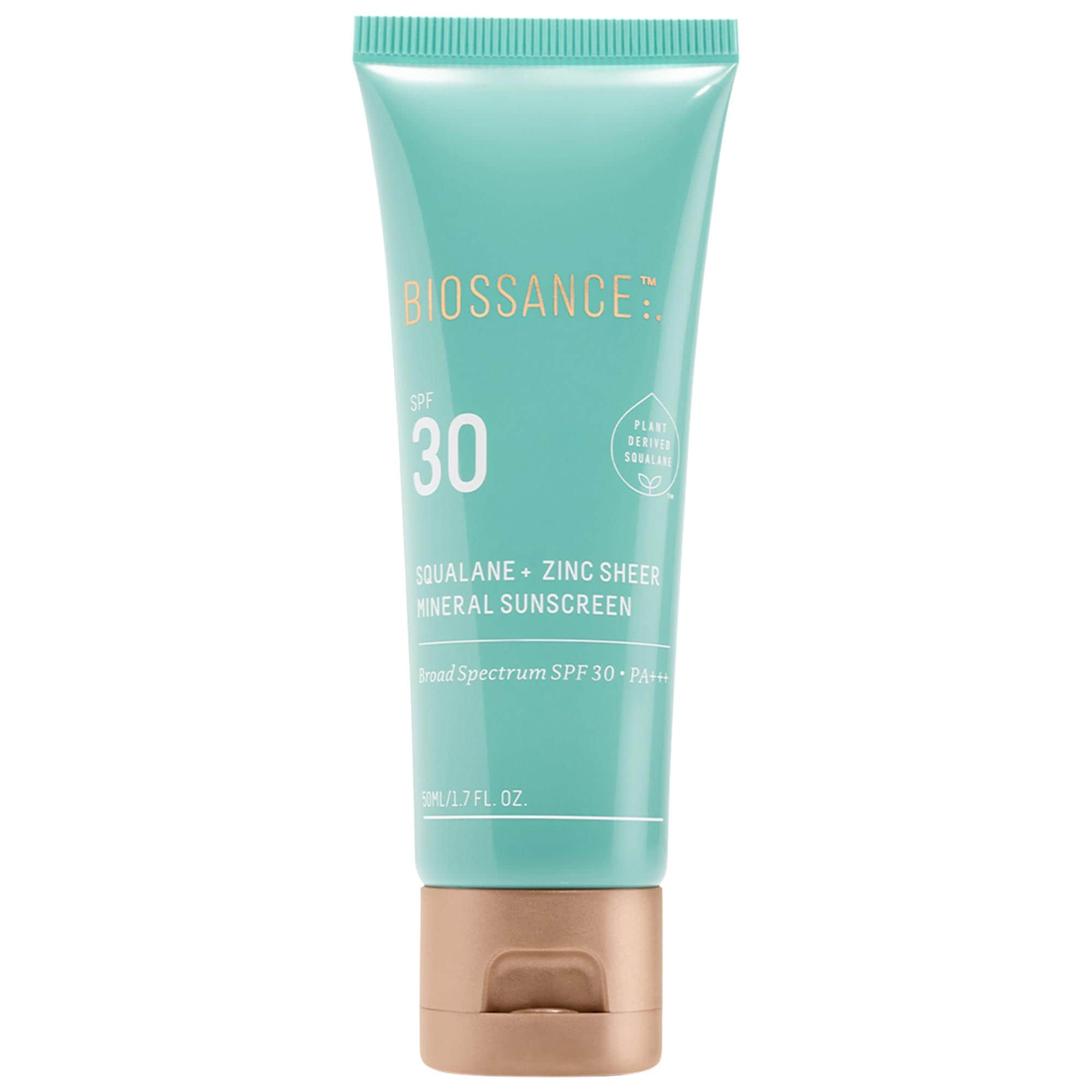
Biossance's signature squalane formulas extend to the SPF category. This one is super sheer, formulated with 100 percent non-nano zinc that protects and hydrates even the most sensitive skin. A star ingredient in the formula is called ectoin, which is loved by dermatologists for its anti-inflammatory and UV-protecting qualities. It leaves a dewy glow behind, too, making it perfect for no-makeup beach days.
What We Love: Vegan formulation; reef-safe; fragrance-free; very hydrating formula that grips makeup
What We Don’t: Pills with certain skincare products
SPF: 30
Type: Mineral
Active Ingredients: Zinc Oxide 17.68 percent
Color: White
Texture: Lotion
Review for MC: "Once I started applying this sunscreen, I was a tad worried because it was very white. But after about 20 seconds of rubbing it in, I was left with a completely sheer finish. If I didn't know any better, I would've assumed it was a moisturizer or makeup primer. It has the creamiest texture that immediately plumped and hydrated my skin, which made a world of difference in applying my foundation." — Brooke Knappenberger, Associate E-Commerce Editor
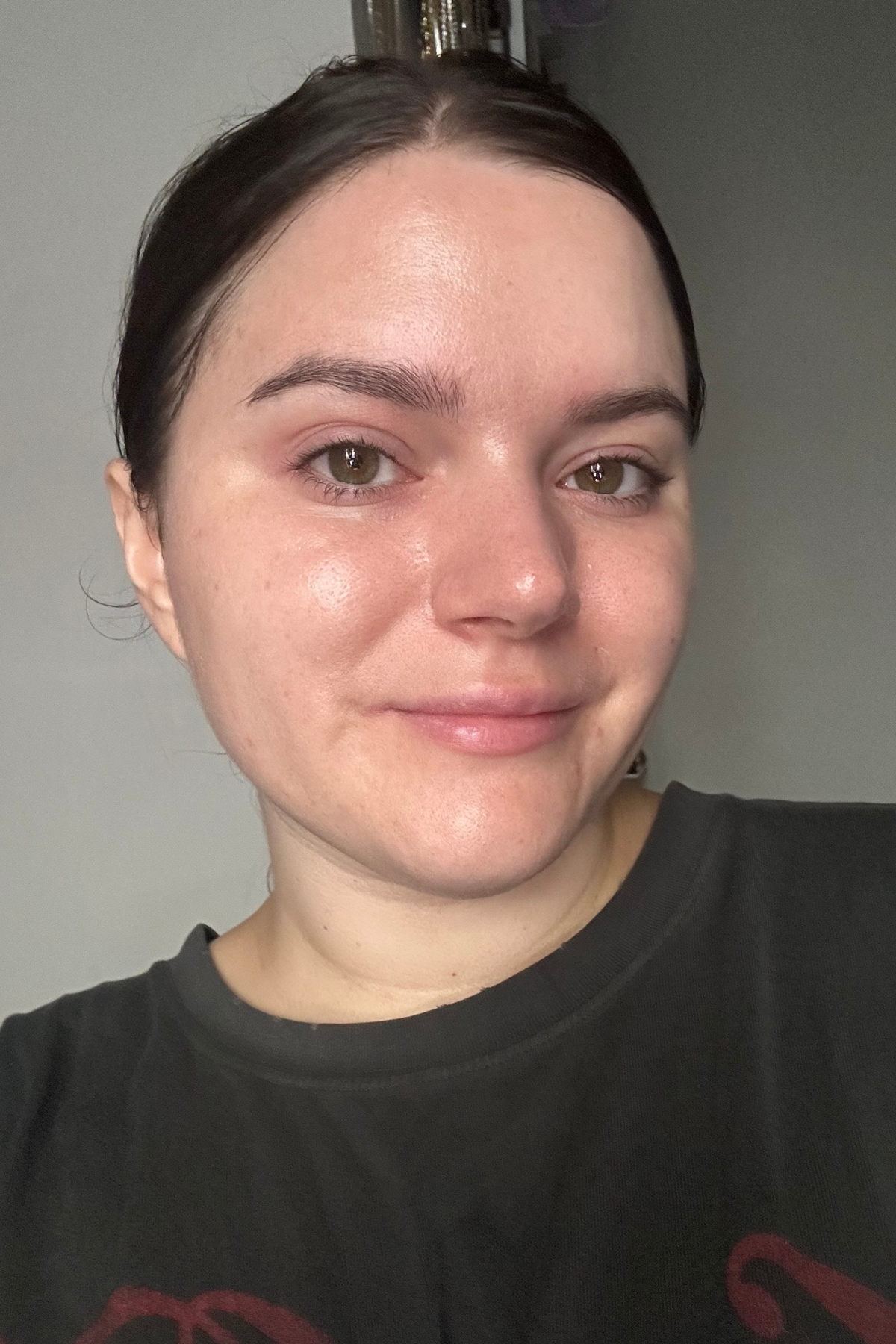
Brooke was surprised by how seamlessly this SPF rubbed in.
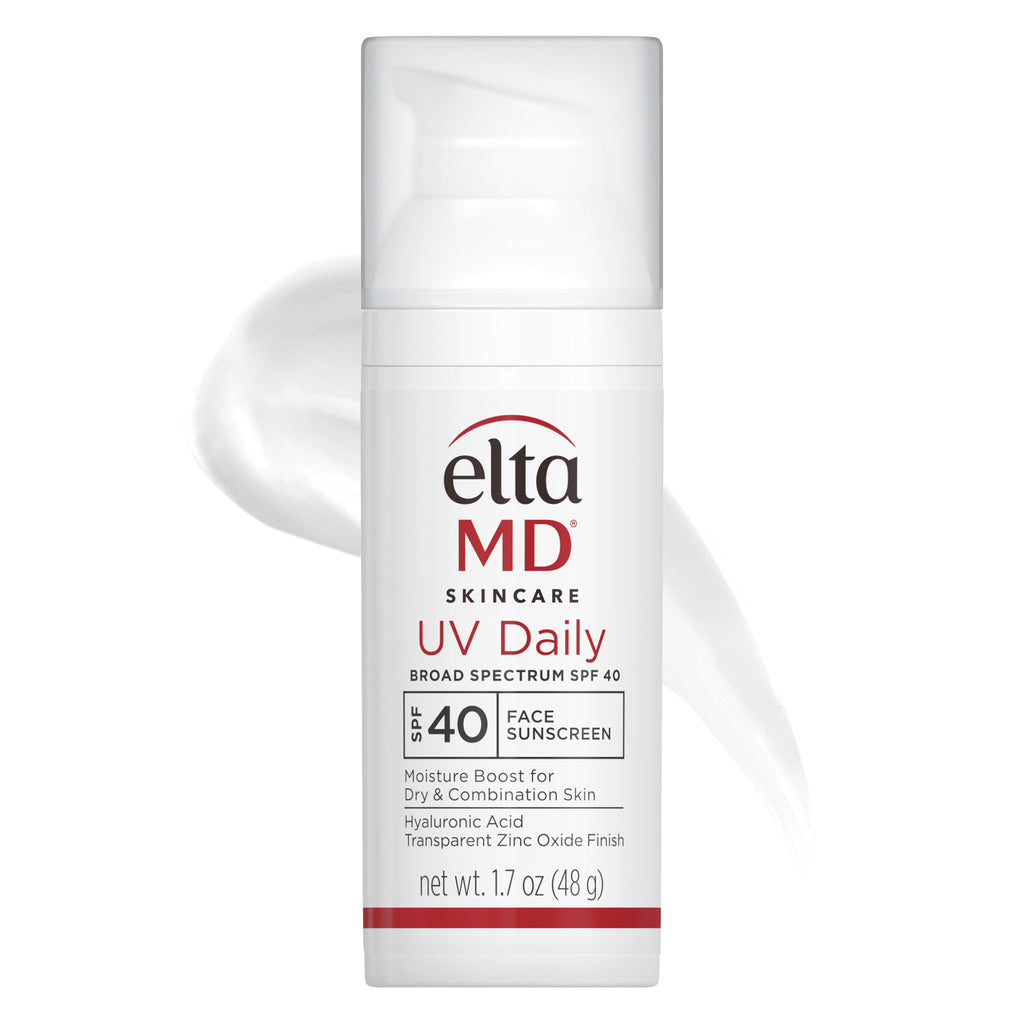
Ask 100 dermatologists what their favorite sunscreen is, and you'll get the same response 100 times: EltaMD. Not only is the cult-favorite brand completely safe for acne-prone skin, but this sunscreen is infused with a small dose of lactic acid to keep pores clear, along with mattifying ingredients to help prevent makeup from slipping and sliding by noon.
What We Love: Dermatologist approved; no white case; mineral sunscreen with a lightweight chemical-feeling texture; very hydrating
What We Don’t: Difficult to wash off
SPF: 40
Type: Mineral
Active Ingredients: Zinc Oxide 10 percent, Titanium Dioxide 5.5 percent
Color: White
Texture: Lotion
Review for MC: “Since sunscreen is the one product I wear consistently every day, I have a few requirements: it can't be greasy or oily, leave a white cast, cause my makeup to pill, or clog my pores. Elta MD's UV Clear ticks all of those boxes and more. It genuinely feels more like a moisturizer rather than a sunscreen with a creamy, hydrating feel that applies flawlessly under makeup. I also love how it works with my sensitive skin, not against it, with good-for-you ingredients like niacinamide, hyaluronic acid, and lactic acid.” — Brooke Knappenberger, Associate E-Commerce Editor
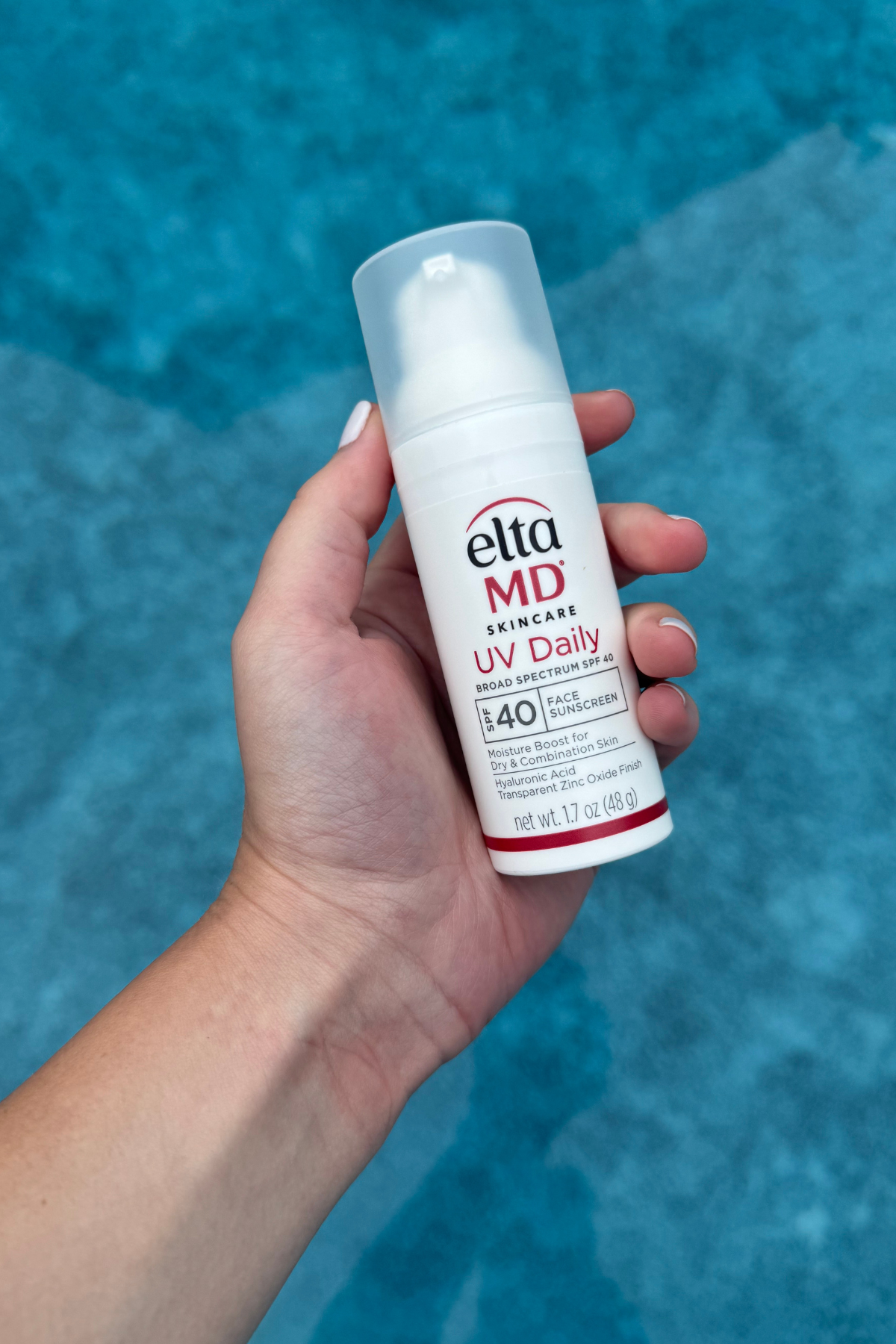
This SPF comes in tinted versions, too.
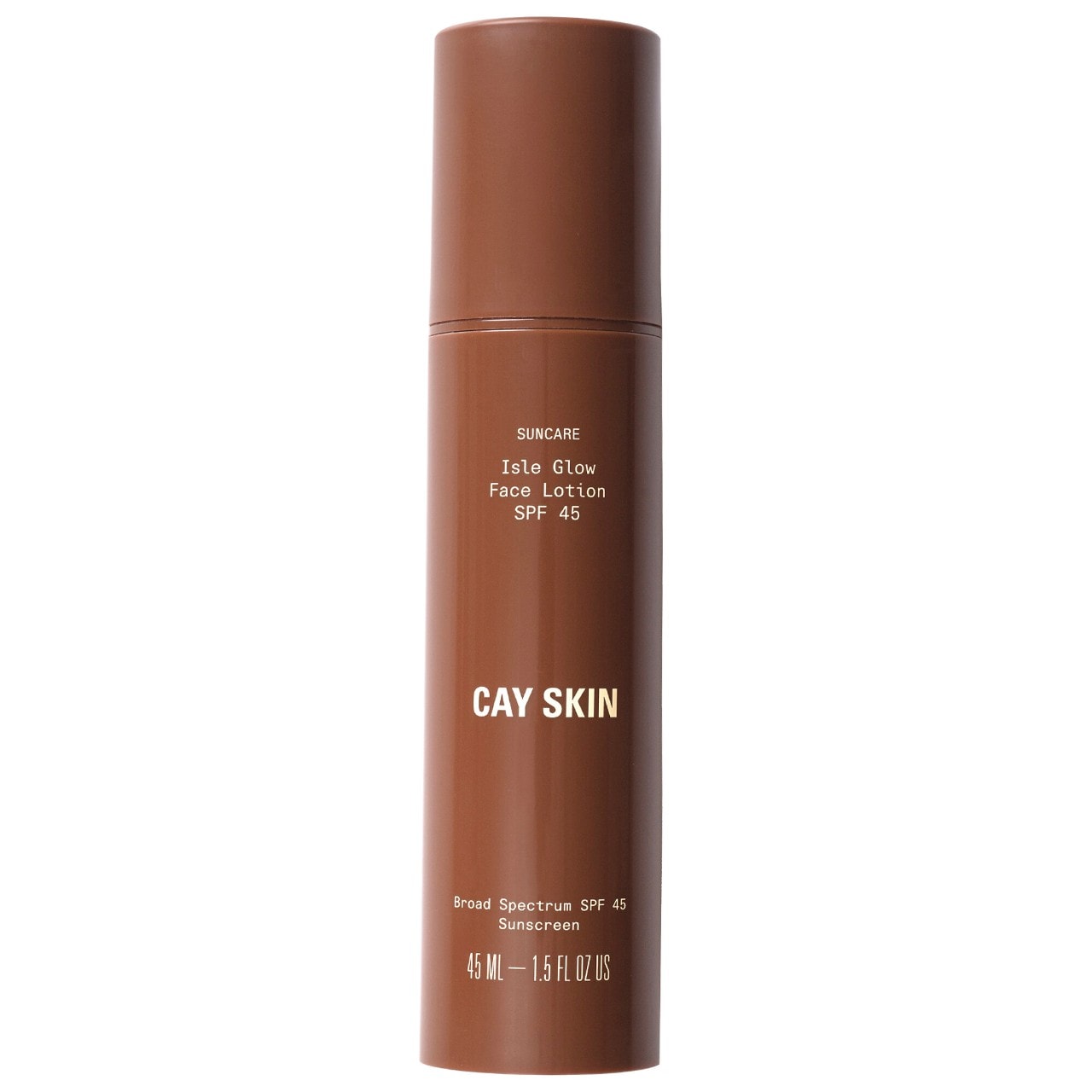
An island glow is indeed promised—and delivered, with this Winnie Harlow-designed sunscreen. The nude-meets-pearl tint delivers a subtle light-catching glow to the skin without an unwanted silver or gold tone. The ingredient profile is really what sets this SPF apart though. In addition to the chemical actives, it includes deeply hydrating ingredients like sea moss, hydrating nectar, and niacinamide.
What We Love: Contains great supplemental ingredients like niacinamide; celebrity endorsed; very hydrating formula; no white cast and works on all skin tones
What We Don’t: Some report that it burns upon application
SPF: 45
Type: Chemical
Active Ingredients: Avobenzone 3 percent, Octisalate 5 percent, Octocrylene 10 percent
Color: Nude
Texture: Lotion
Review for MC: “Though I’ve long ogled their lip balms and everything founder Winnie Harlow has going on, Cay Skin is ultimately a new-to-me brand. Honestly, I feel bad for the past version of me, who didn’t have Isle Glow in her life. Though I love my clear Revision or Josh Rosebrook sunscreens on an average day, the tiny pearlescent pigments in this are so good. Next to the immense glow, they gave a blurring effect that truly shocked me as I applied my required amount (two finger lengths!) in the mirror. I was also shocked this doesn’t contain silicones, as it’s so, so smooth and silky. Gorgeous!” — Sophia Vilensky, Beauty Freelancer
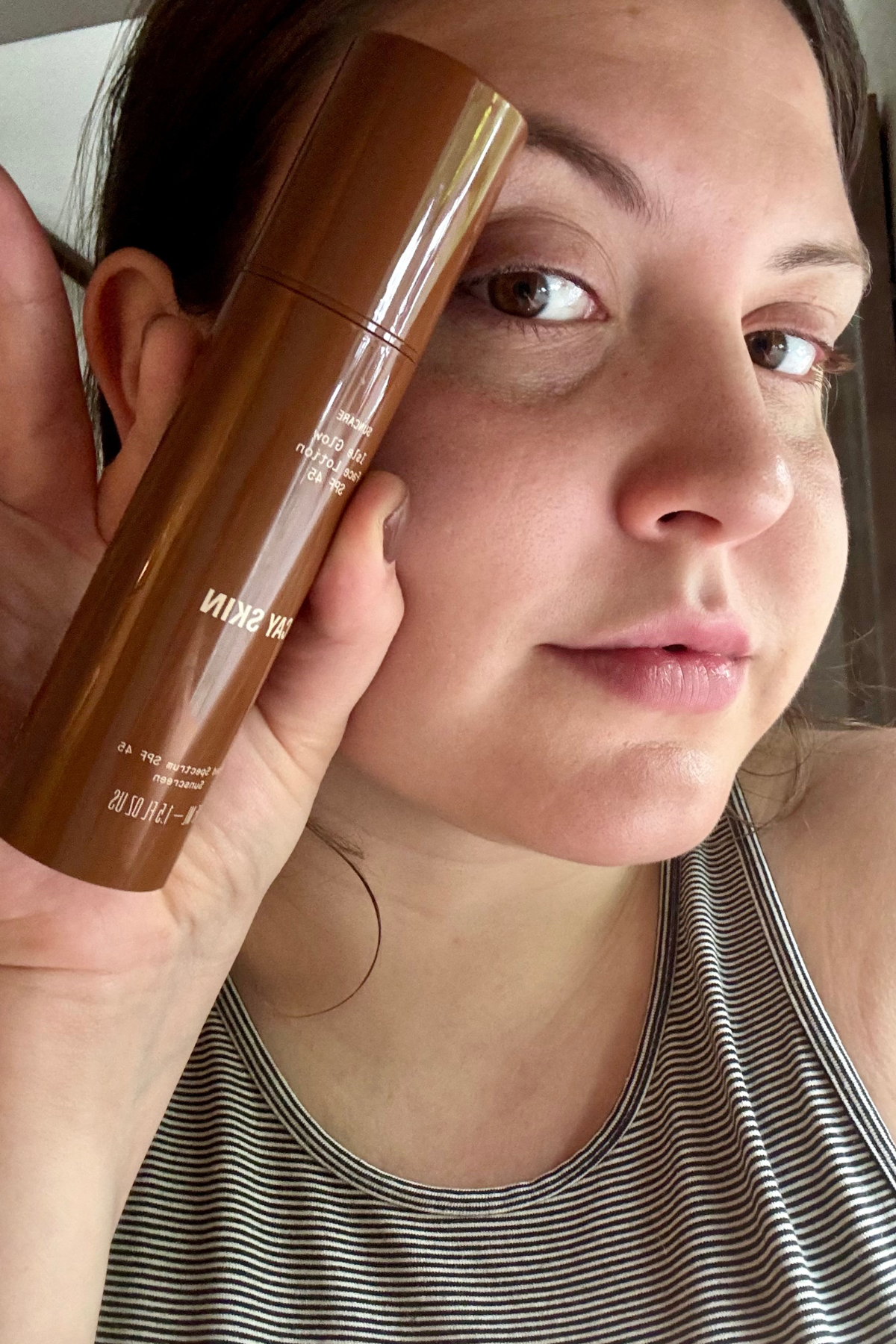
Sophia notes that Cay has a gorgeous blurring finish.
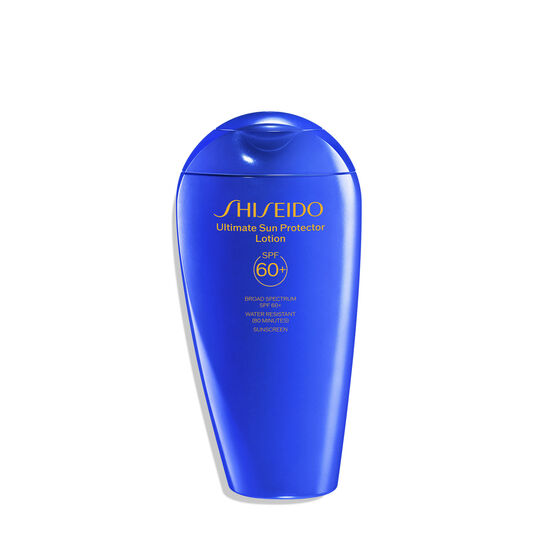
I have a sneaky suspicion a handful of Olympic athletes have this new 2024 sunscreen on hand in Paris. It’s designed to last through dips in the ocean, outdoor workouts, and extremely hot days. “Shiseido is the first brand to convert me to facial sunscreen, with its thin formulas that sink into the skin fast and never make me feel greasy,” Beauty Write Gabrielle Ulubay previously told Marie Claire. “This newest iteration boasts 80 minutes of water- and sweat-resistance and a higher degree of SPF. It also protects against both UVA rays, UVB rays, and pollution, so I can leave the house feeling confident that my sunscreen is guarding both my skin and my long-term health.”
What We Love: Protection becomes stronger in the heat or with sweat; no white cast; can be used on face or body; silky texture that’s great for everyday wear
What We Don’t: Doesn’t last very long
SPF: 60
Type: Chemical
Active Ingredients: Purpose Avobenzone 2.3 percent, Homosalate 10 percent, Octisalate 5 percent, Octocrylene 5.0 percent
Color: Clear
Texture: Lotion-meets-gel
Review for MC: “I am a sensitive skin girl to my core. If there is a rash or reaction to be had, it’s only a matter of time before it makes a home on my skin. That in mind, trying new sunscreens is a little like testing fate. I was a bit apprehensive to slather this on my rosacea-prone skin, but to my surprise, I actually found the formula quite soothing. It has a bit of a cooling effect and I genuinely felt like it kept my redness at bay. The texture is reminiscent of a primer with a silicone-feeling glide (don’t worry though, it’s silicone-free).” — Samantha Holender, Beauty Editor
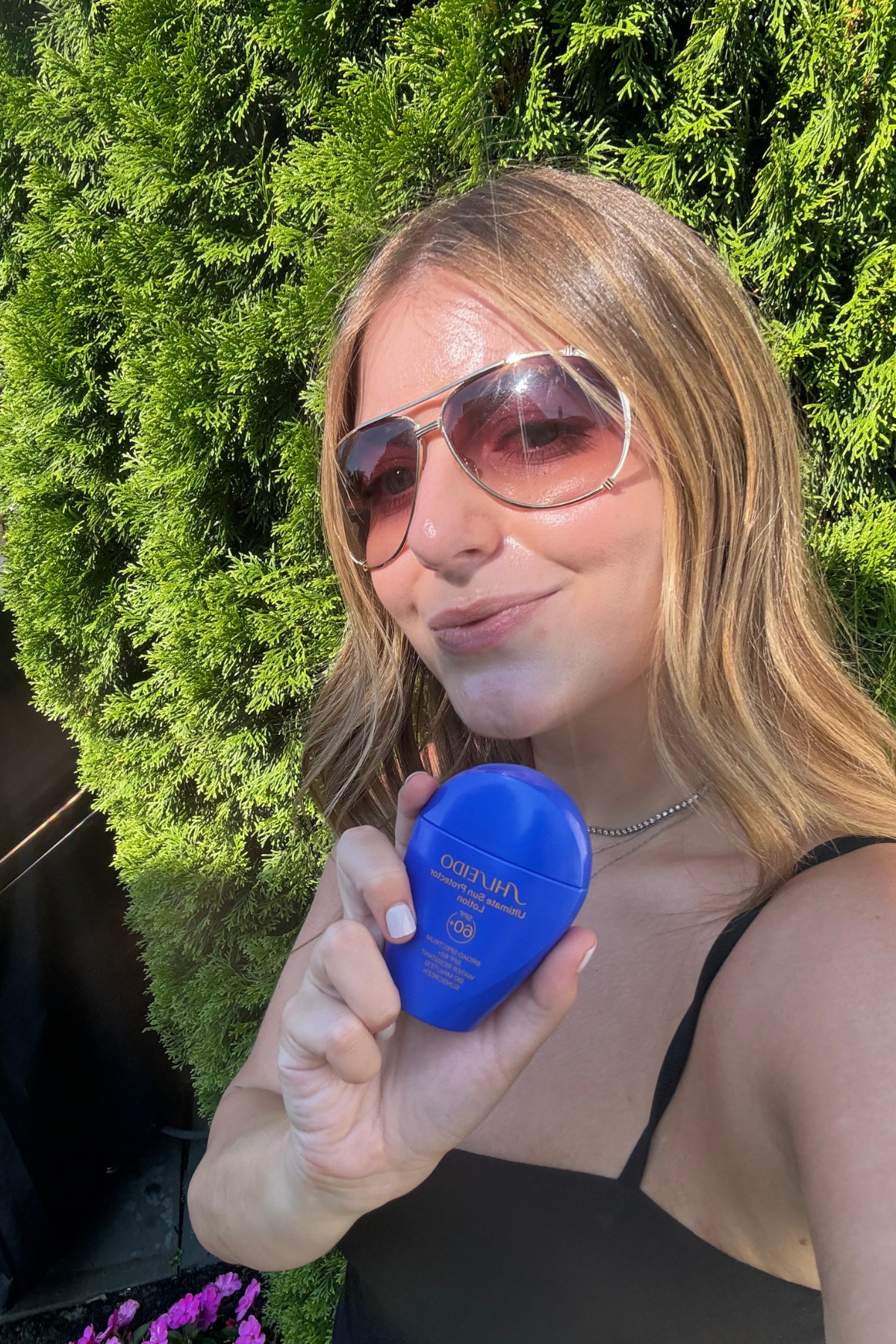
As someone with sensitive skin, I can confirm this won't cause irritation.
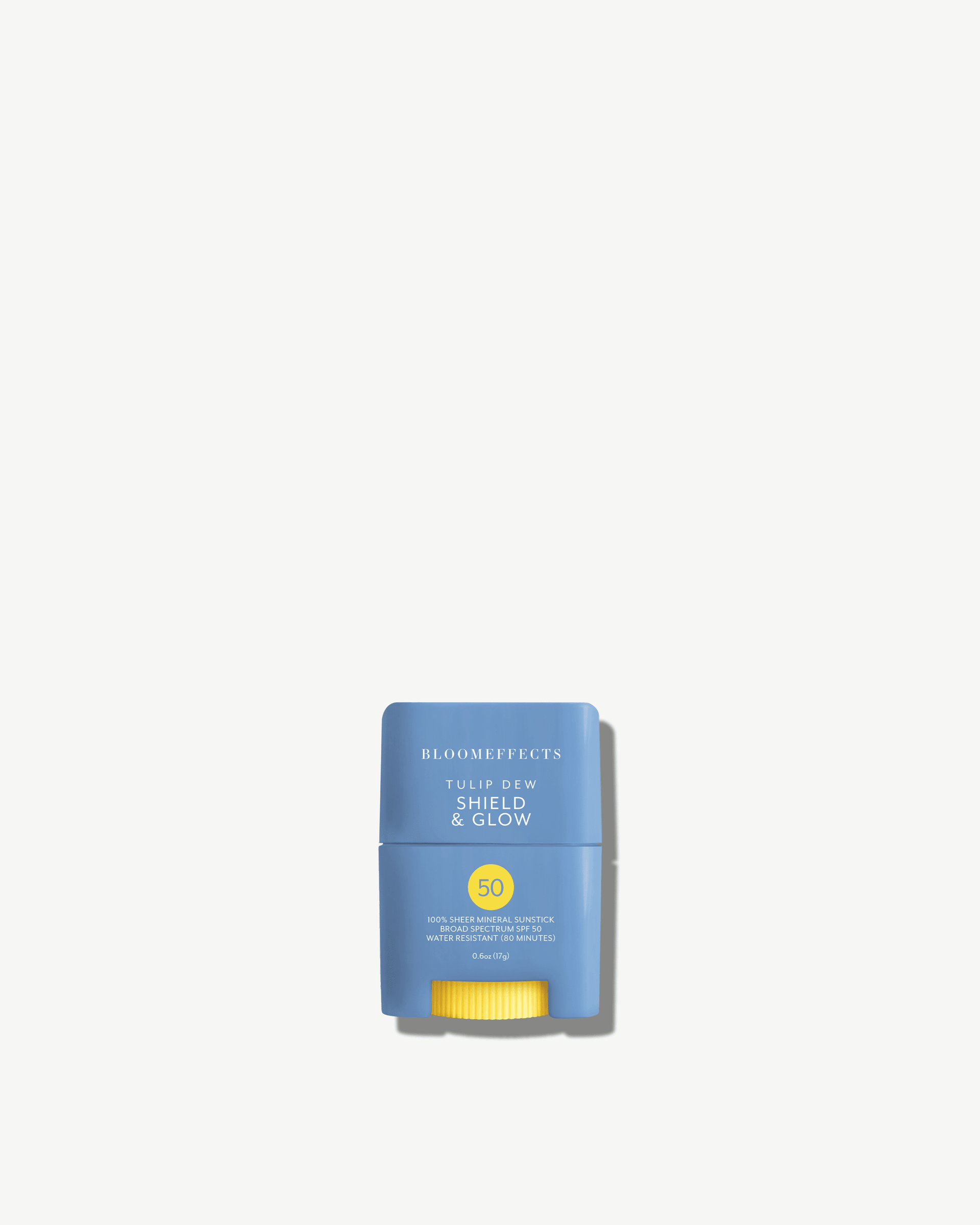
Sunscreen sticks have a special place in a beauty editor’s life. While they’re not necessarily the best bet for initial application (you need to apply a full shot glass-worth of product, remember that), they can make reapplication incredibly easy. If you’re on the hunt for a new, easy-to-apply option, allow me to recommend this newly launched Bloomeffects mineral stick. It leaves a gorgeous glow behind and has calming vitamin E, making it a great option for sensitive and dry skin types.
What We Love: Stick formulation great for reapplication; no white cast; radiant finish; hydrating vitamin E
What We Don’t: You need to apply a lotion for your initial application
SPF: 50
Type: Mineral
Active Ingredients: Non-Nano Zinc Oxide 14.7 percent
Color: White to clear
Texture: Stick
Review for MC: “I'm always skeptical when I hear “sheer mineral sunscreen.” Maybe I’m triggered by so many bad ones that left me with a thick white cast, or maybe I’ve been burned too many times by false marketing language. Whatever the reason, I tend to give mineral sunscreens the side eye. But this sunstick melts on my skin, leaving me with a glowy finish all over my arms, neck, and face. I plan to take it with me for quick sun protection for my entire family for every beach trip this summer.” — Beauty Director, Deena Campbell
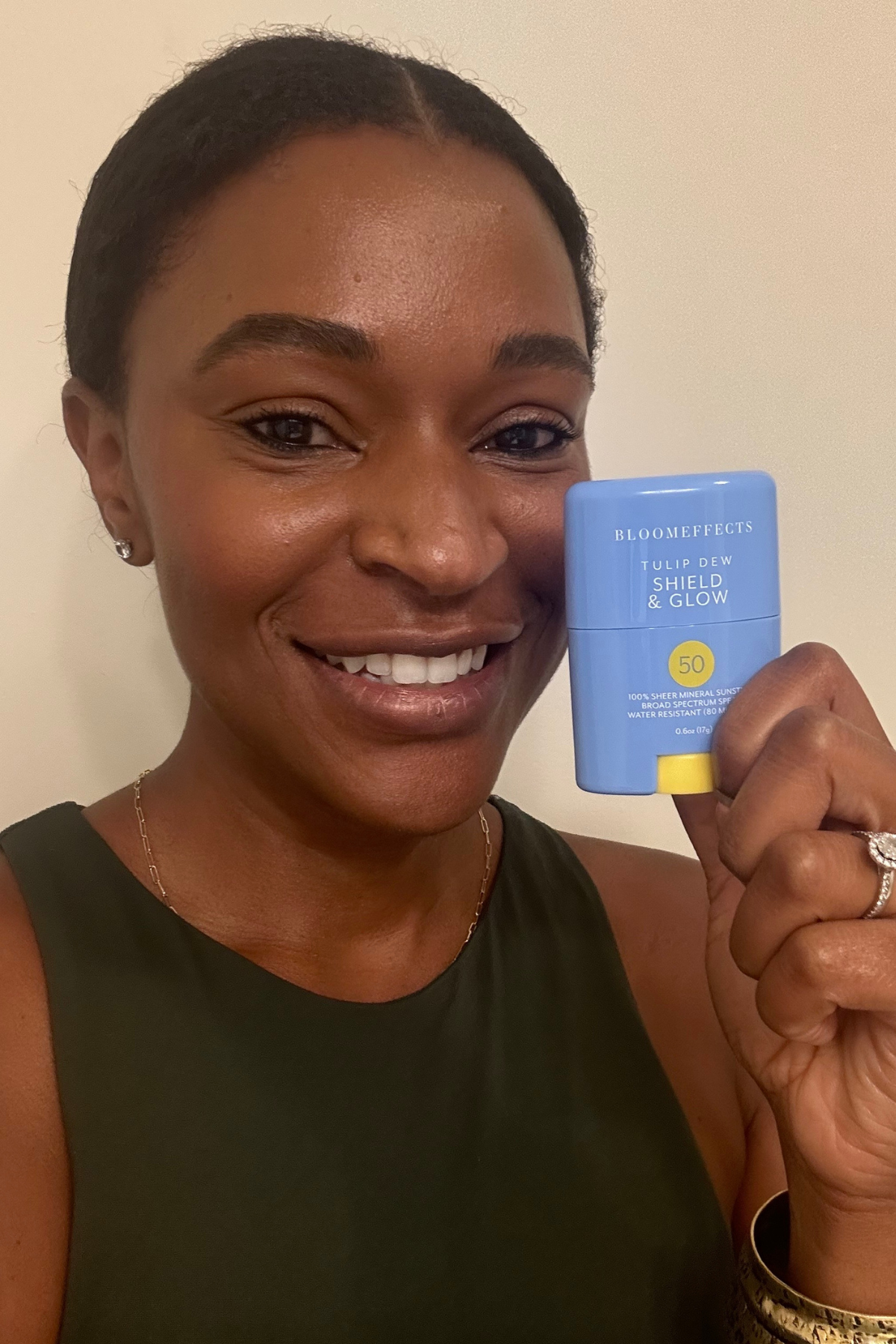
This is a great mineral option for darker skin tones.
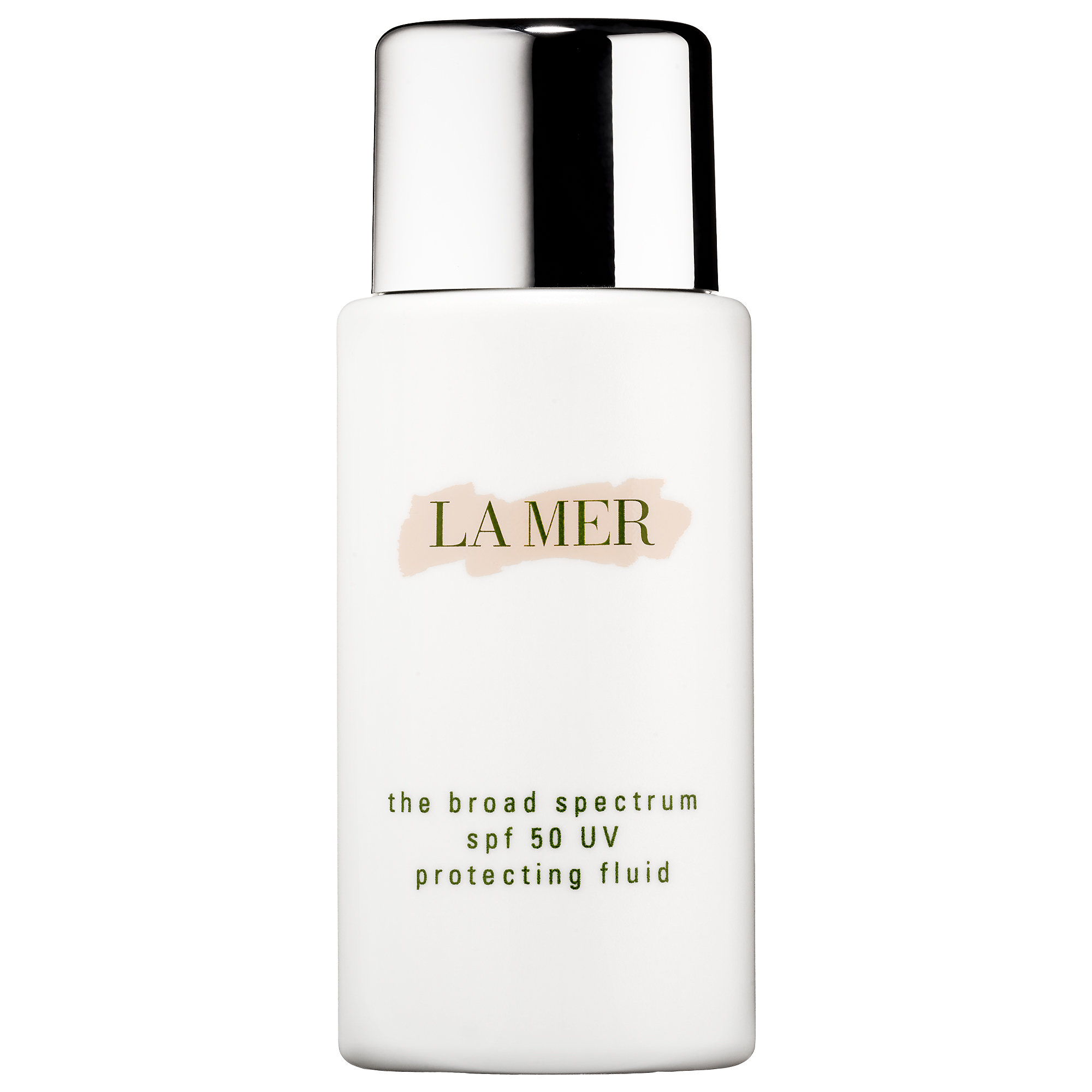
To know La Mer is to know the brand always includes its famed Miracle Broth in every formula. I’ll spare you the composition of said magic concoction (it reads like a lesson in AP science), but will confirm that it lives up to the firming, plumping, fine-line-reducing hype. This silky lotion blends into the skin without aggressive rubbing, leaving a subtle sheen on the skin. While it might not be your beach day pick (it is expensive), it’s a great everyday option—that will provide a glow under makeup.
What We Love: Compatible with many skin types, including combination; smells like a spa; has a lightweight—almost watery—texture that feels nonexistent on the skin
What We Don’t: High price point
SPF: 50
Type: Chemical
Active Ingredients: Avobenzone, Homosalate, Octosalate
Color: White
Texture: Lotion
Review for MC: “At first, I was nervous that La Mer's sunscreen would be too rich for my combination skin. It's thicker than my usual go-to's and, like many of the brand's other offerings, it aims to provide all-day hydration. And while this formula was whiter and took more time to rub in than more lightweight options, it dried quickly, had a matte finish, and played well with my other skincare products. It also sat well under makeup and didn't break me out—even after I wore it during some of the hottest days of the summer.” — Gabrielle Ulubay, Beauty Writer
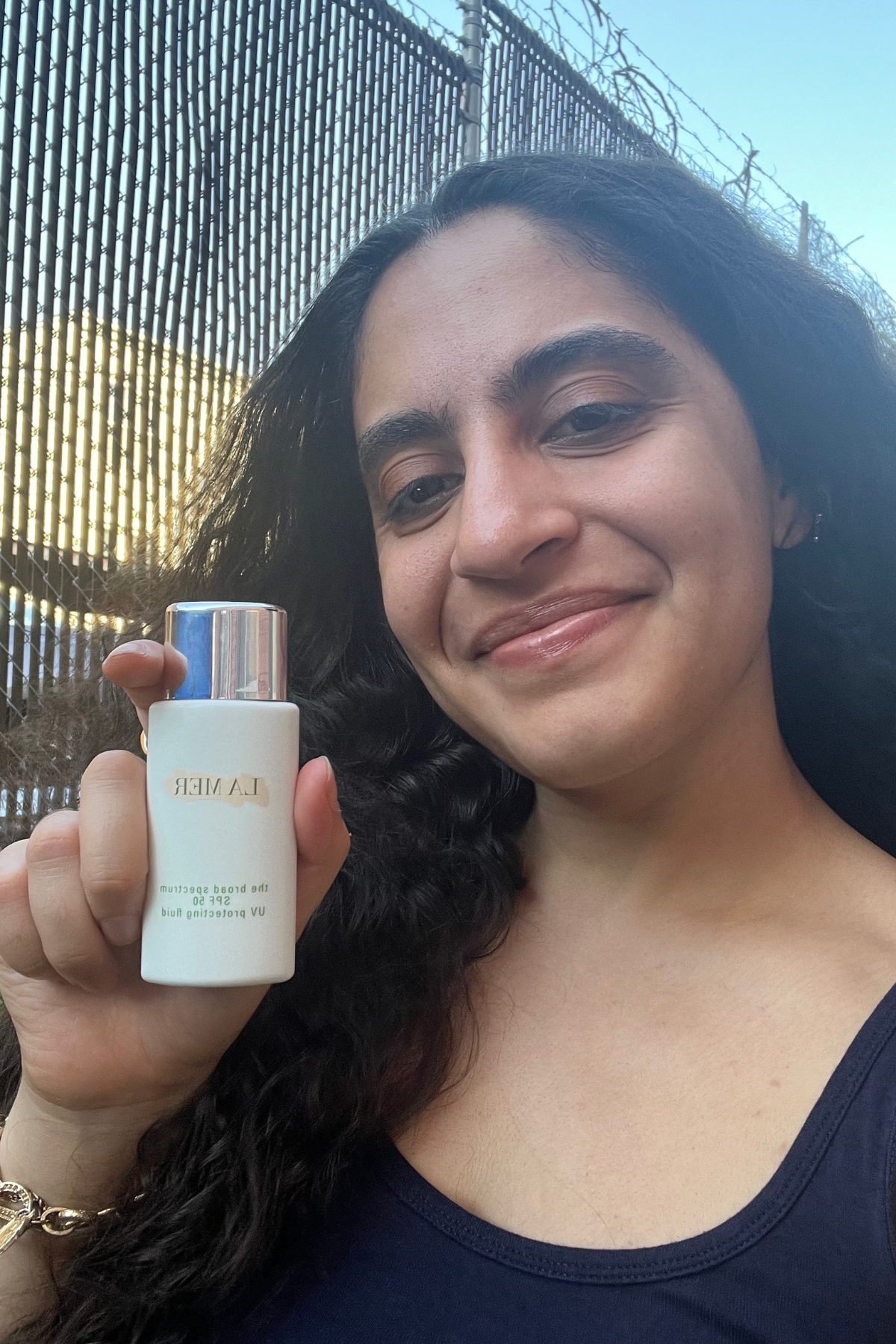
Gabrielle notes that the matte finish and non-comedogenic formula is an ideal option for combination skin types.
Also Recommended
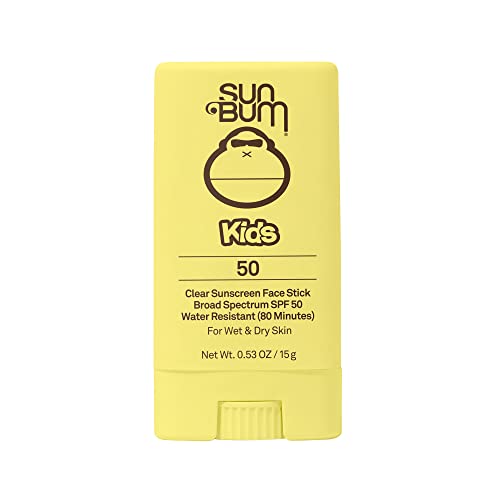
"My favorite tip for kids is to use a stick sunscreen," says Laura Scott, MD FAAD, and board-certified dermatologist. I love Sun Bum’s new Kids Face Stick. It's mess-free for both kids and parents and so easy to apply (and reapply) while showing up completely clear." This particular stick spreads on smoother than most, so you can actually get the product on every inch of skin without too much of a fuss.
What We Love: Dermatologist-recommended; great for reapplication; easy to put on kids (and they can apply it themselves!)
What We Don’t: Sand sticks to it
SPF: 50
Type: Chemical
Active Ingredients: Homosalate 10 percent, Octocrylene 10 percent, Octisalate 5 percent, Avobenzone 3 percent
Color: Clear
Texture: Stick
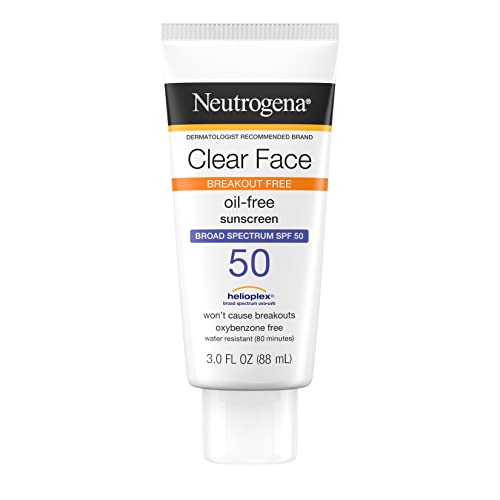
If oil and acne have traditionally made you give sunscreen a side eye, let us introduce you to this Neutrogena miracle worker. The Environmental Working Group has given it a green light thanks to its efficacy and safety. It feels extremely breathable on the skin and is non-comedogenic. It's a win-win-win.
What We Love: Matte finish; oil-free, so it won’t clog pores; no white cast; fragrance-free, so it’s great for sensitive skin
What We Don’t: It might feel a bit greasy; some report that it burns their eyes
SPF: 50
Type: Chemical
Active Ingredients: Avobenzone 3 percent, Homosalate 10 percent, Octisalate 5 percent, Octocrylene 10 percent
Color: White
Texture: Lotion
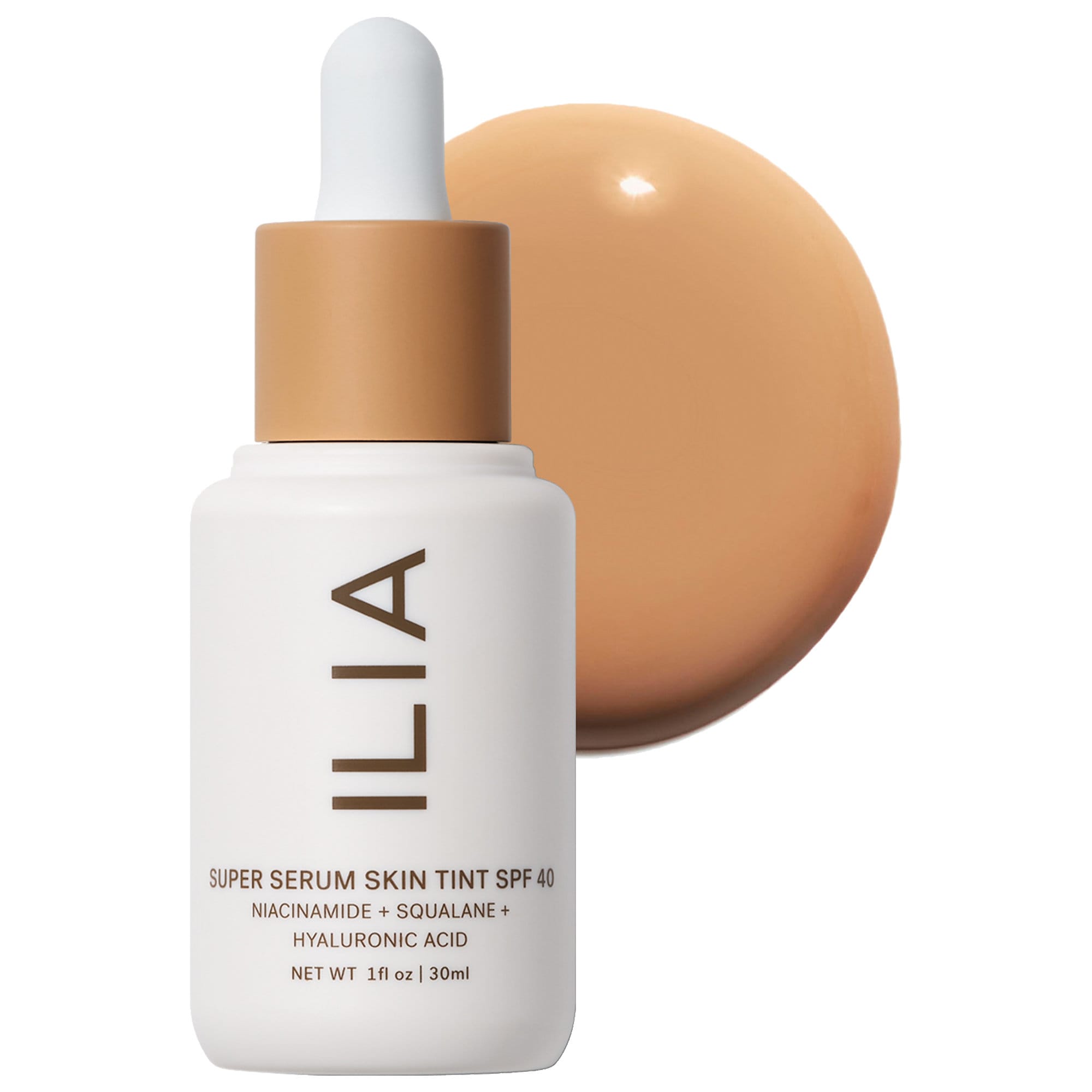
You've definitely seen Ilia's SPF-packed skin tint on social media, and trust us, it lives up to the hype. If you like dewy coverage (who doesn't?!) you'll quickly become obsessed with this formula, which is available in 30 shades. That said, you do still need to apply a full teaspoon of product to achieve the recommended SPF. If you won't wear that much, just layer one of these other amazing sunscreens underneath.
What We Love: Easy way to incorporate sunscreen into your skincare routine; high level of protection; no white cast; great shade range
What We Don’t: Can make you look a little greasy
SPF: 40
Type: Mineral
Active Ingredients: Zinc Oxide 12 percent
Color: Tinted
Texture: Serum
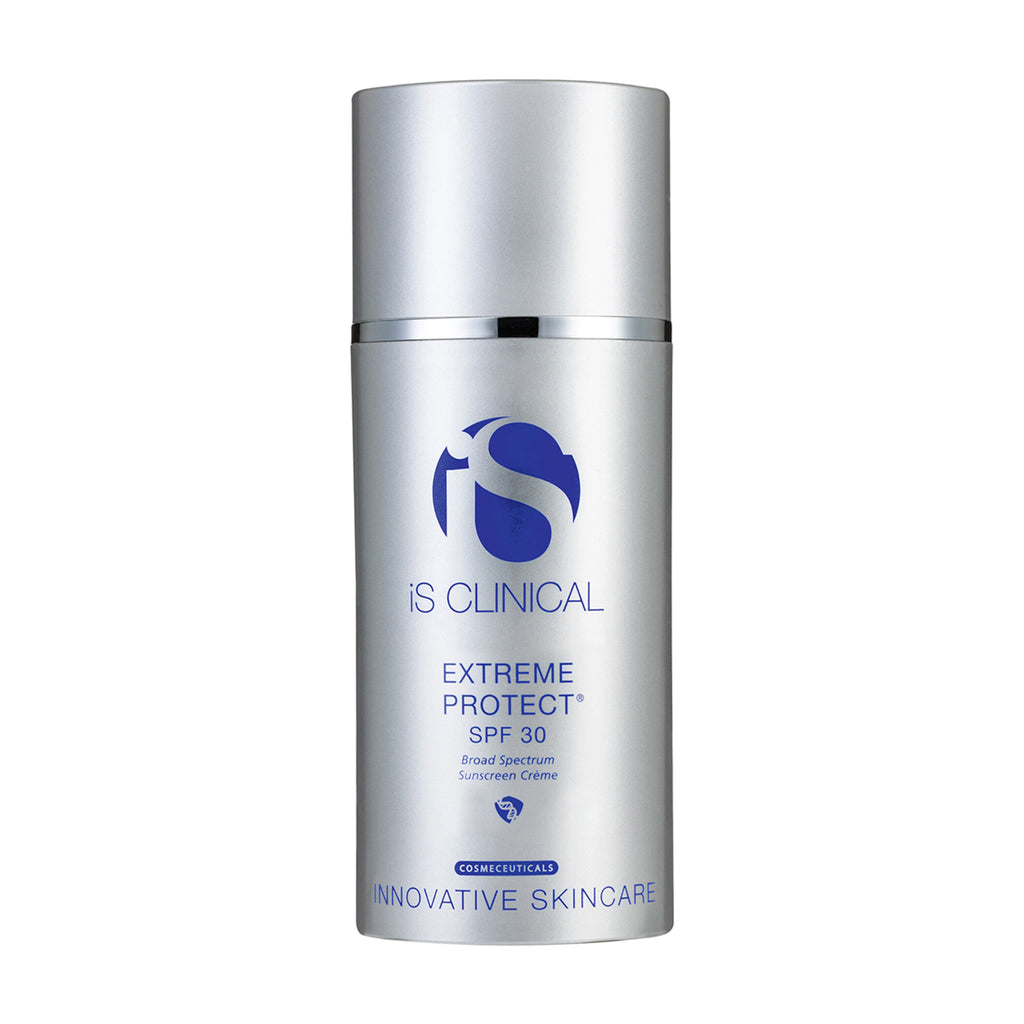
If the sun or heat triggers your rosacea (hi, yes, me), check out this thick mineral sunscreen. It’s one of my personal favorites, thanks to olive leaf extract, which reduces redness, and soothing aloe, which keeps my skin calm. The best part? It gives the skin an insanely gorgeous, dewy glow. When I wear this SPF, I don’t even need a highlighter.
What We Love: Offers great protection—against UV rays and blue light; very soothing and calming; great for sensitive skin and rosacea
What We Don’t: It definitely has a thicker, goopier feel and requires a lot of energy to rub in
SPF: 40
Type: Chemical
Active Ingredients: Octinoxate 5.5 percent, Zinc Oxide 4.12 percent
Color: White
Texture: Cream
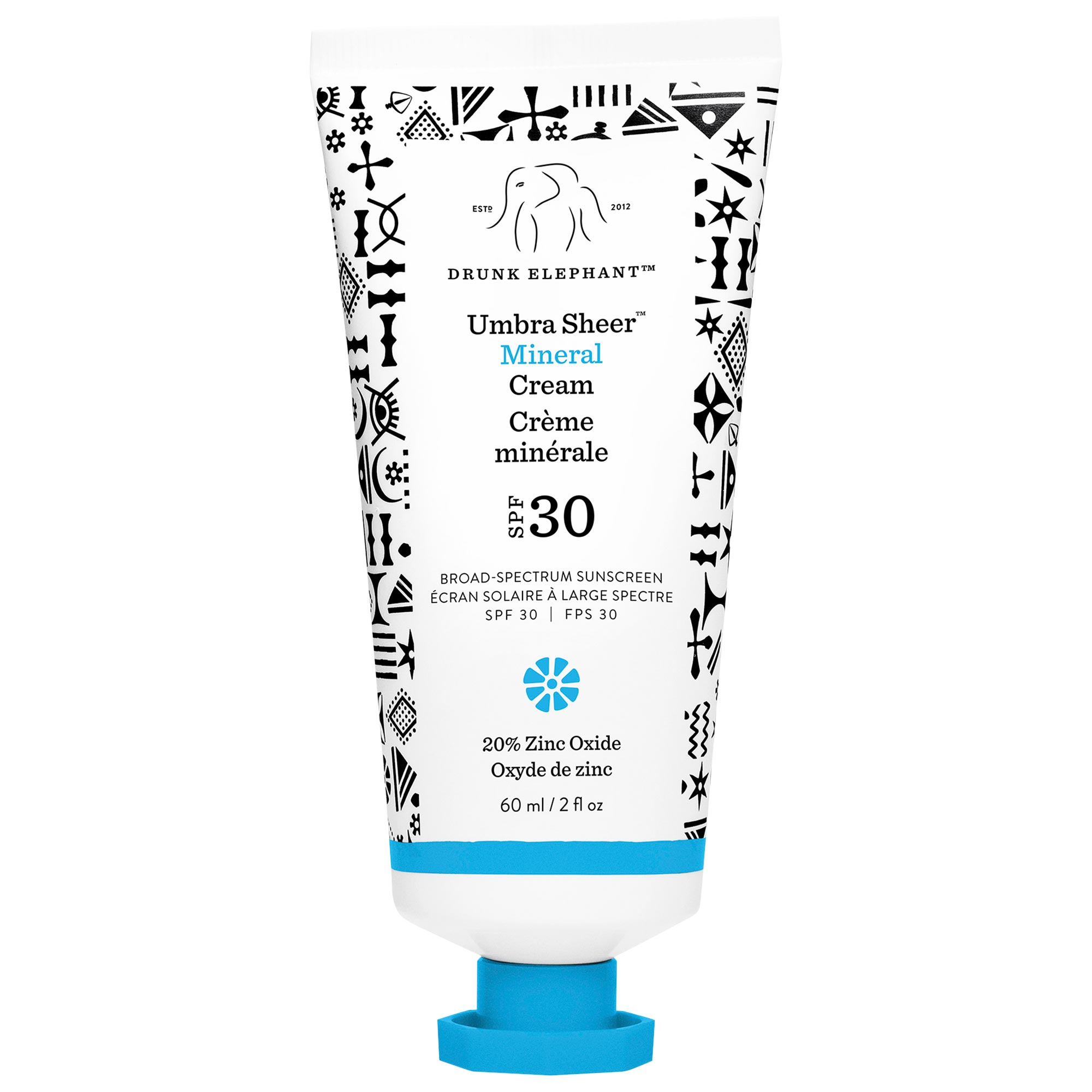
Skin smoothies are great and all, but the final step in any Drunk Elephant routine is perhaps the best. “I was so excited to try this mineral sunscreen since I have tried a few others that were too thick and left a white film on my skin. This Drunk Elephant one is incredible,” says Marie Claire’s Integrated Marketing Group Executive Director Dana Mendelwitz. “ It goes on much more smoothly than other mineral sunscreens absorbs easily, looks sheer, and feels light on my skin.” Plus, the product has a pink tint that is responsible for softly blurring the skin.
What We Love: Safe for sensitive skin; no white cast; no pilling
What We Don’t: Some say it irritates sensitive eyes
SPF: 30
Type: Mineral
Active Ingredients: Zink Oxide
Color: Pale pink
Best Body Sunscreens
- Best Body Sunscreen Overall: La Roche-Posay Anthelios Mineral Gentle Sunscreen Lotion
- Best Mineral Body Sunscreen: Necessaire The Sunscreen
- Best Spray Sunscreen: Kopari Sunglaze Sheer Body Mist Sunscreen SPF 46
- Best Sunscreen Oil: Vacation Shimmer Oil SPF 30
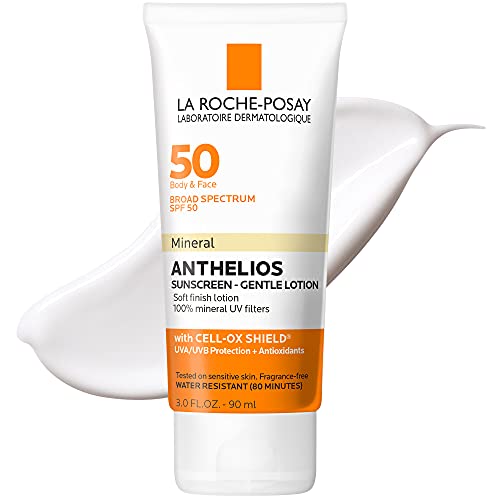
This creamy sunscreen was approved as one of the safest sunscreens in the Environmental Working Group's 2022 report. While they tested a grand total of 1,850 sunscreens, only 500 were up to par—including this moisturizing option. It's a great double-duty option for both the face and body, leaves an amazing glow (trust us, we've tried it), and is oil-free, so it won't clog pores or contribute to breakouts.
What We Love: Drugstore access and price point; non-comedogenic; can be used for the face and body
What We Don’t: Feels a little goopy; takes a minute to rub in
SPF: 50
Type: Mineral
Active Ingredients: Titanium Dioxide 5 percent, Zinc Oxide 15 percent
Color: White
Texture: Cream
Review for MC: “I used to come home from every work trip with a carry-on full of French pharmacy skincare, including a few tubes of La Roche Posay’s SPF 50’s sunscreen. It’s one of the few that my skin absorbs fast enough to wear under my daily makeup. The texture right out of the bottle is silky, not sticky—so basically, the opposite of most homegrown sunscreens I’ve tried. Imagine my delight when I figured out I don’t actually need a trip to Paris to stock up—it’s now sold online at Ulta.” — Halie LeSavage, Senior Fashion & Beauty News Editor
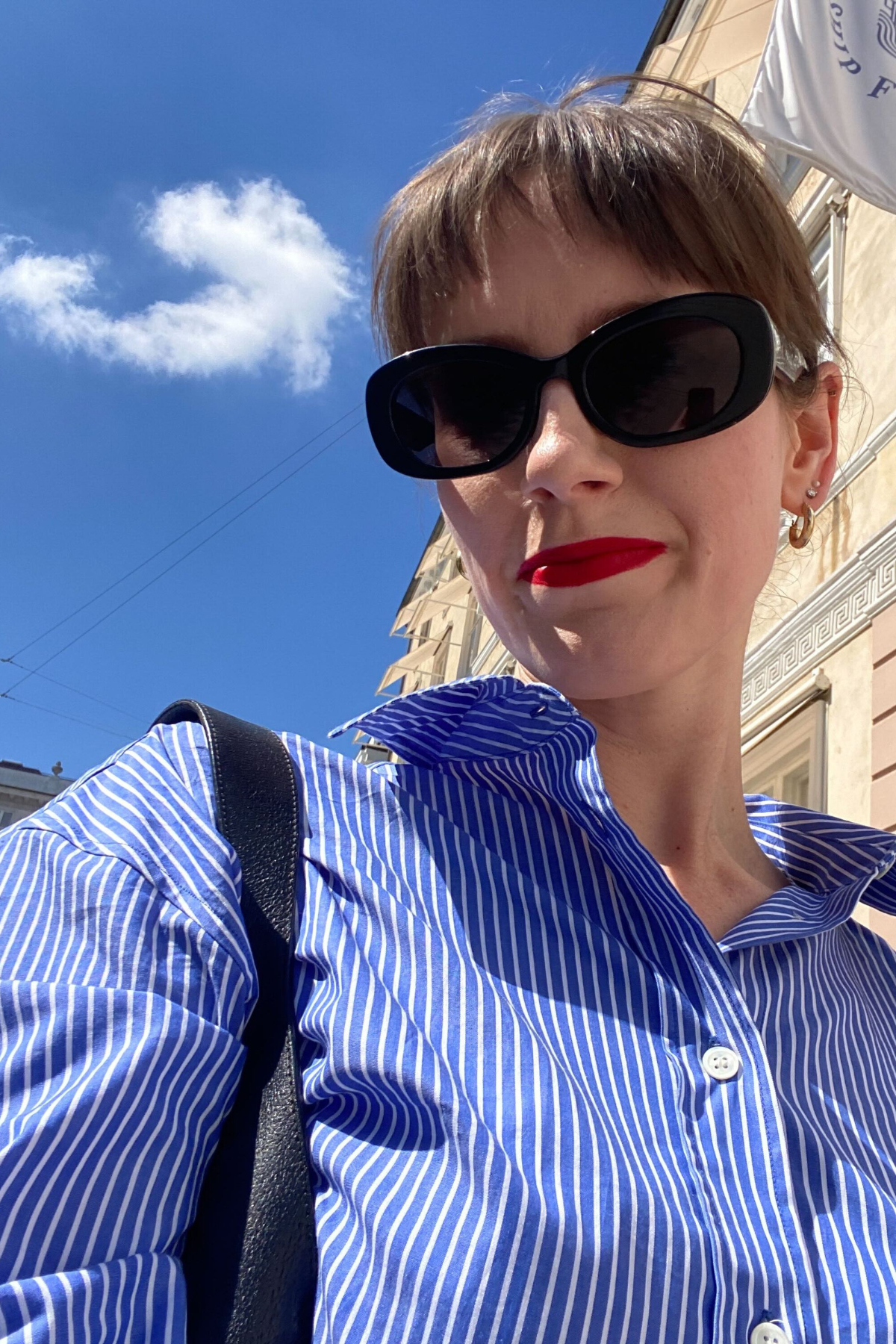
Halie loves this SPF for use on the face and body.
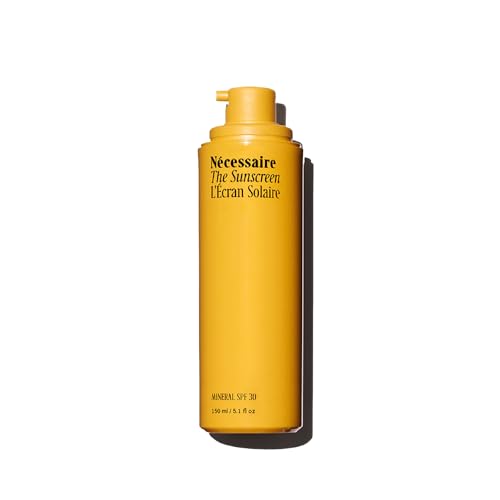
This chic butter yellow bottle houses a water and sweat-resistant mineral sunscreen that I’ve been relying on for the entire summer. It’s formulated with hyaluronic acid, niacinamide, and panthenol, which collectively leave my skin so soft and supple after a day in the sun. Not to brag, but I’ve never been burned while using this.
What We Love: Silky texture; mineral composition that doesn’t leave a white cast; smells great
What We Don’t: Might feel a little heavy
SPF: 30
Type: Mineral
Active Ingredients: 20 percent Non-Nano Zinc Oxide
Color: White
Texture: Cream
Review for MC: “I’m my happiest self when my shower is stocked with Necessaire products. But, I’m even happier when my beach bag follows suit. This sunscreen was an unexpected treat of the summer. From the second I tested it, I was impressed by its texture, elevated packaging, and highly efficacious formula. While I sometimes turn to spray formulas for reapplication, I love this product for baseline protection.” — Samantha Holender, Beauty Editor
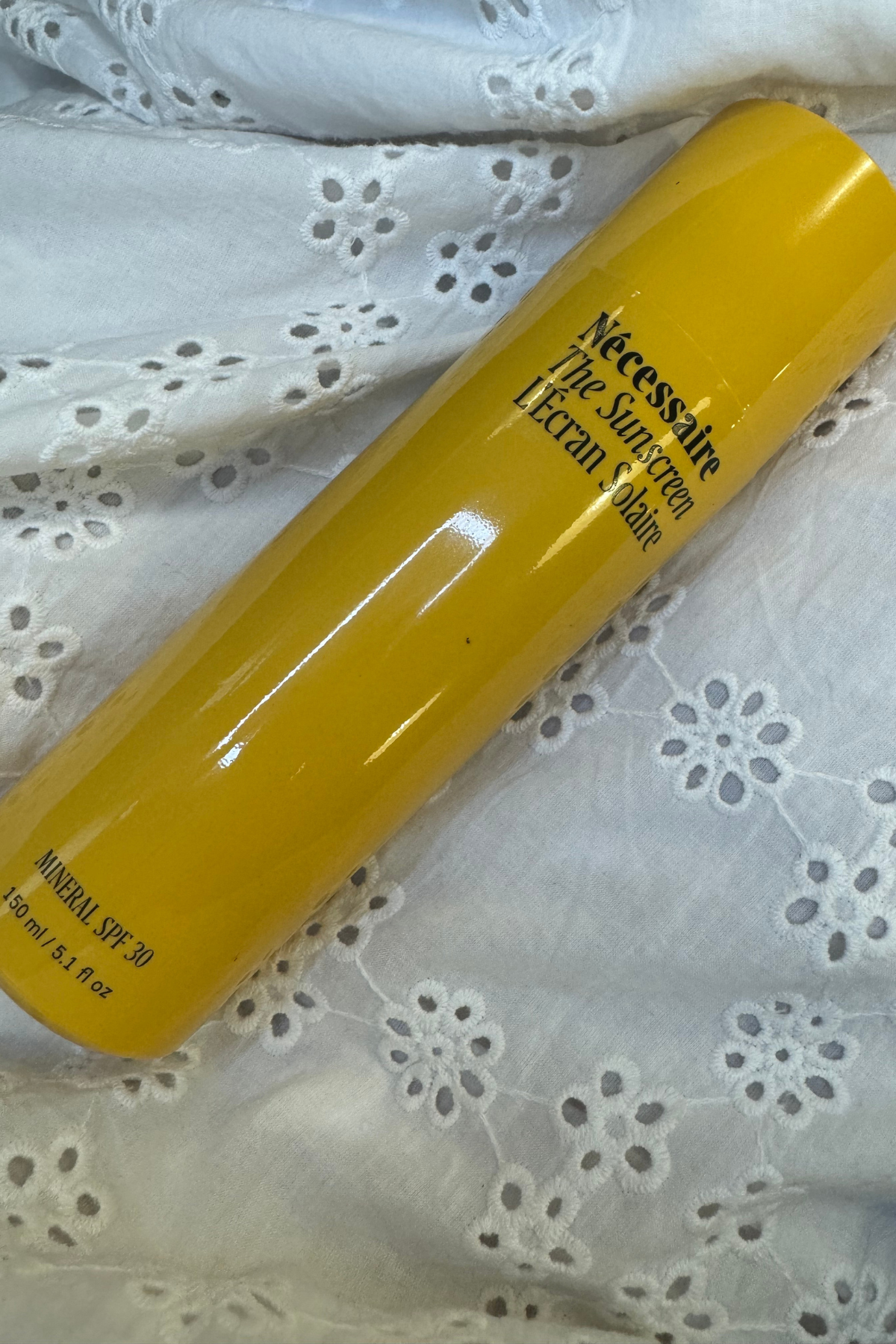
Necessaire's SPF may be pricy, but the bottle is huge.
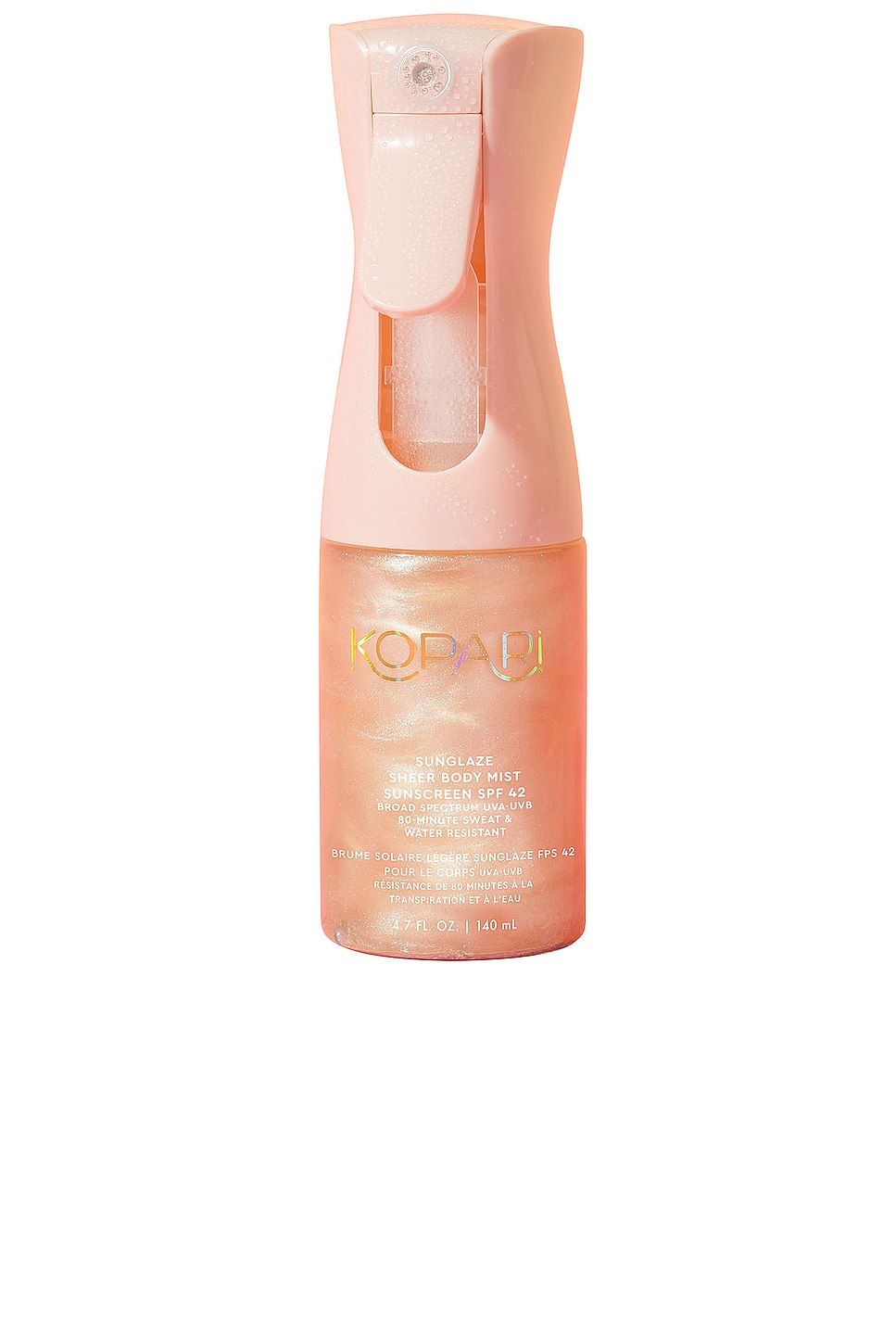
If you plan to sail through the Mediterranean on a yacht, this is the sunscreen you want in your bag. The antioxidant-packed SPF formula gives the skin a sheer, skin tone-evening glaze. I swear, when I use this, my skin looks tanner, healthier, and incredibly soft. The glitter flecks are pretty prominent, so expect to catch light at every turn. If you actually use a decent amount of sunscreen, though, you’ll be well protected from the sun—you’ll have SPF 42 protection.
What We Love: Gorgeous glow; high level of protection; 80 minutes of water and sweat resistance
What We Don’t: Bottle does not last long
SPF: 42
Type: Chemical
Active Ingredients: Avobenzone 3 percent, Homosalate 0.5 percent, Octisalate 5 percent
Color: Clear
Texture: Liquid
Review for MC: “I have put roughly 20 different onto this sunscreen spray—it’s that good. Candidly, I’m not a huge fan of the bubble gum-like scent, but the shimmery finish cannot be beaten. There’s a slight sparkle reminiscent of body oil or shimmer; I’ll even wear this at night when the sun has set just for a little leg glow. The texture isn’t greasy or sticky, but rather dries down within a minute.” — Samantha Holender, Beauty Editor
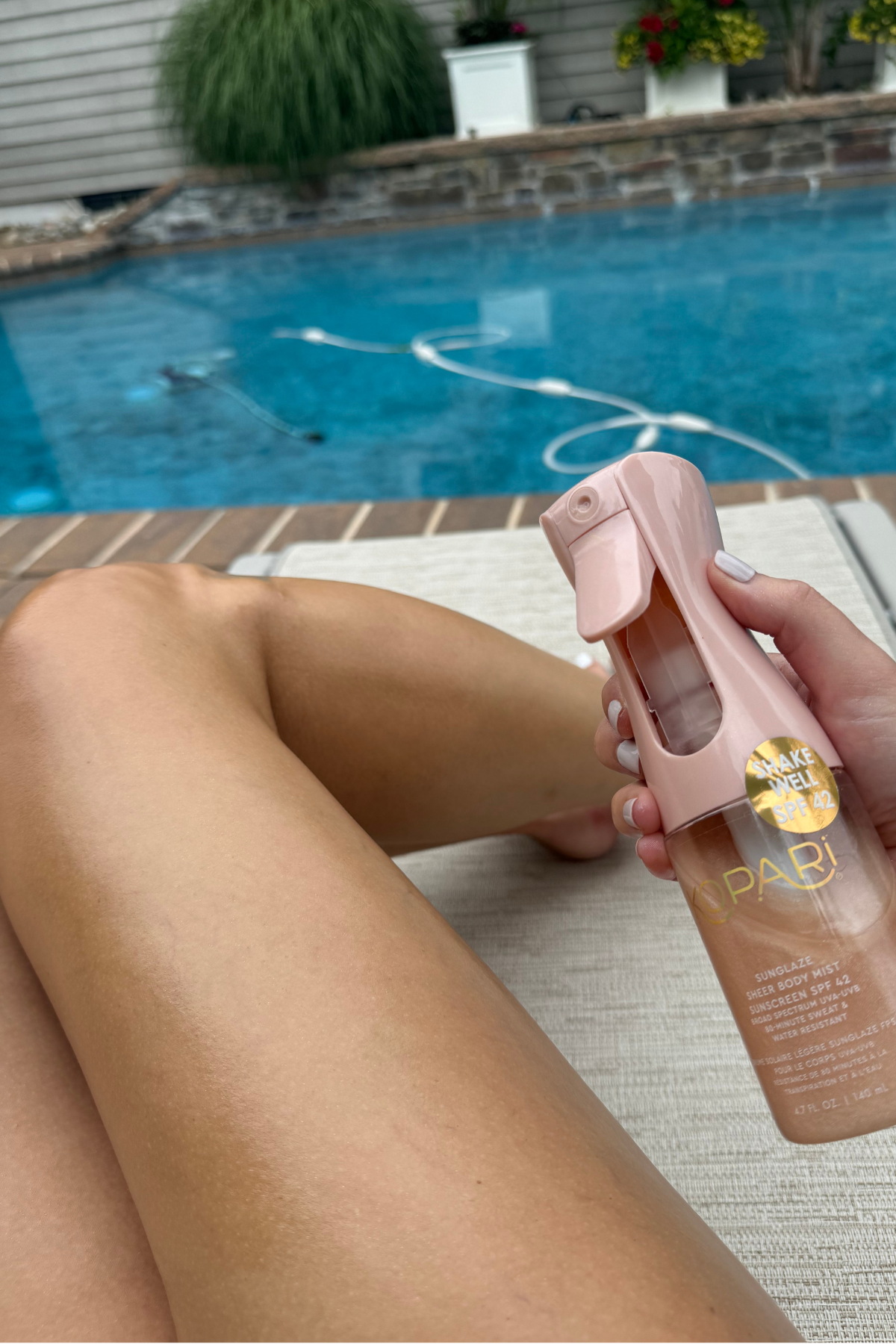
The glow from this Kopari SPF is better than any body oil.
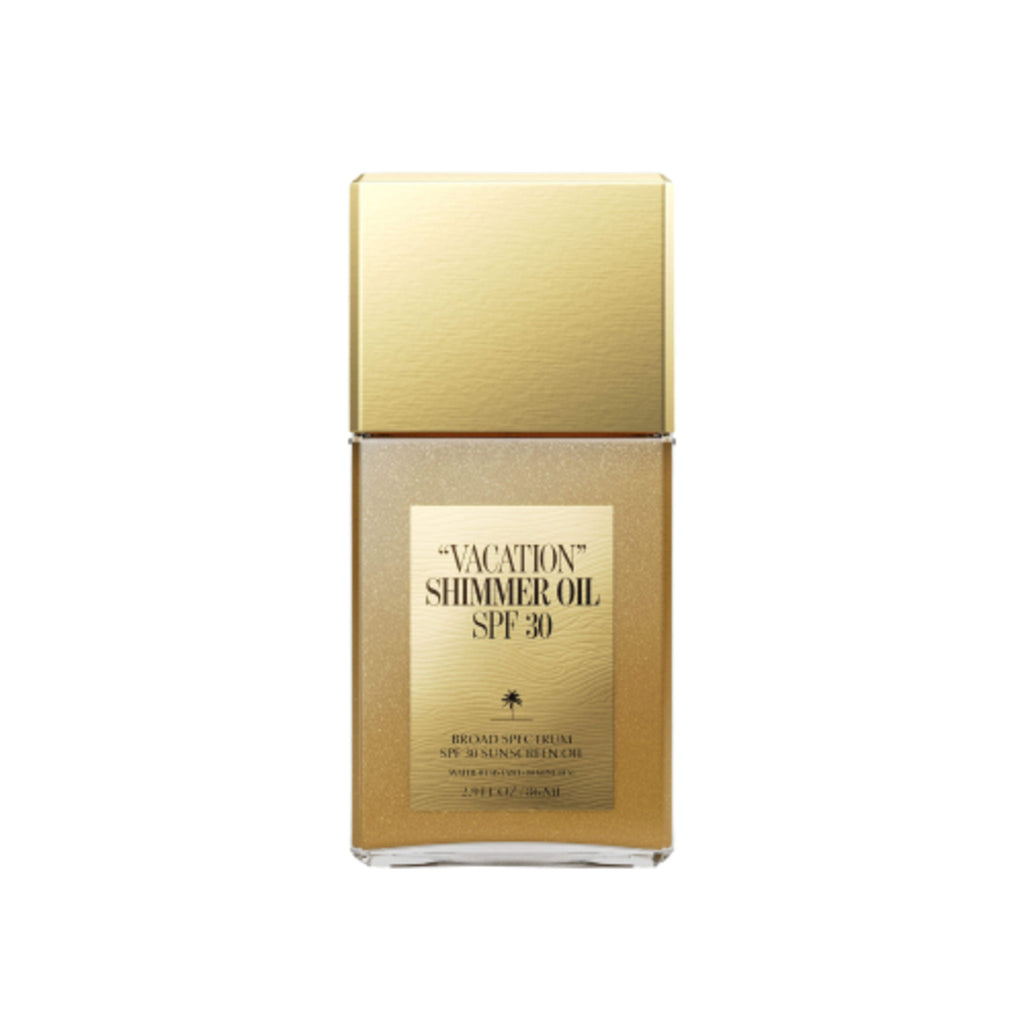
The brand describes this bottle as “black tie” sunscreen—and I couldn’t agree more. While it’s certainly not going to be for your regular shmegular beach day, it will add an extra layer of glitz (and protection) when you have a bachelorette party, boat day, or even a fancy beach club lunch on the agenda. The SPF, which smells like orange, coconut, and banana, has suspended pearlescent gold and glaze flecks encased inside. Candidly, you might even want a sheer layer of this before heading out to dinner.
What We Love: Gorgeous glowy topper for legs and arms; Doesn’t feel greasy
What We Don’t: You would need to use so much product actually to get the promised protection
SPF: 30
Type: Chemical
Active Ingredients: Avobenzone 2.9 percent, Homosalate 5 percent, Octisalate 4.9 percent, Octocrylene 8 percent
Color: Gold
Texture: Liquid
Review for MC: “While I’ll never support tanning oil, I can support sunscreen oil. Vacation, the brand known for its nostalgic SPF products, dropped this glitzy formula earlier this year. While it’s not my go-to base sunscreen, I always use a few pumps on top as a topper. The gold flecks give my skin a reflective shimmer that looks gorgeous in the sun. I use about two pumps per leg, and one pump on each arm. Do this, and I promise you’ll receive so many compliments on your glowing skin.” — Samantha Holender, Beauty Editor
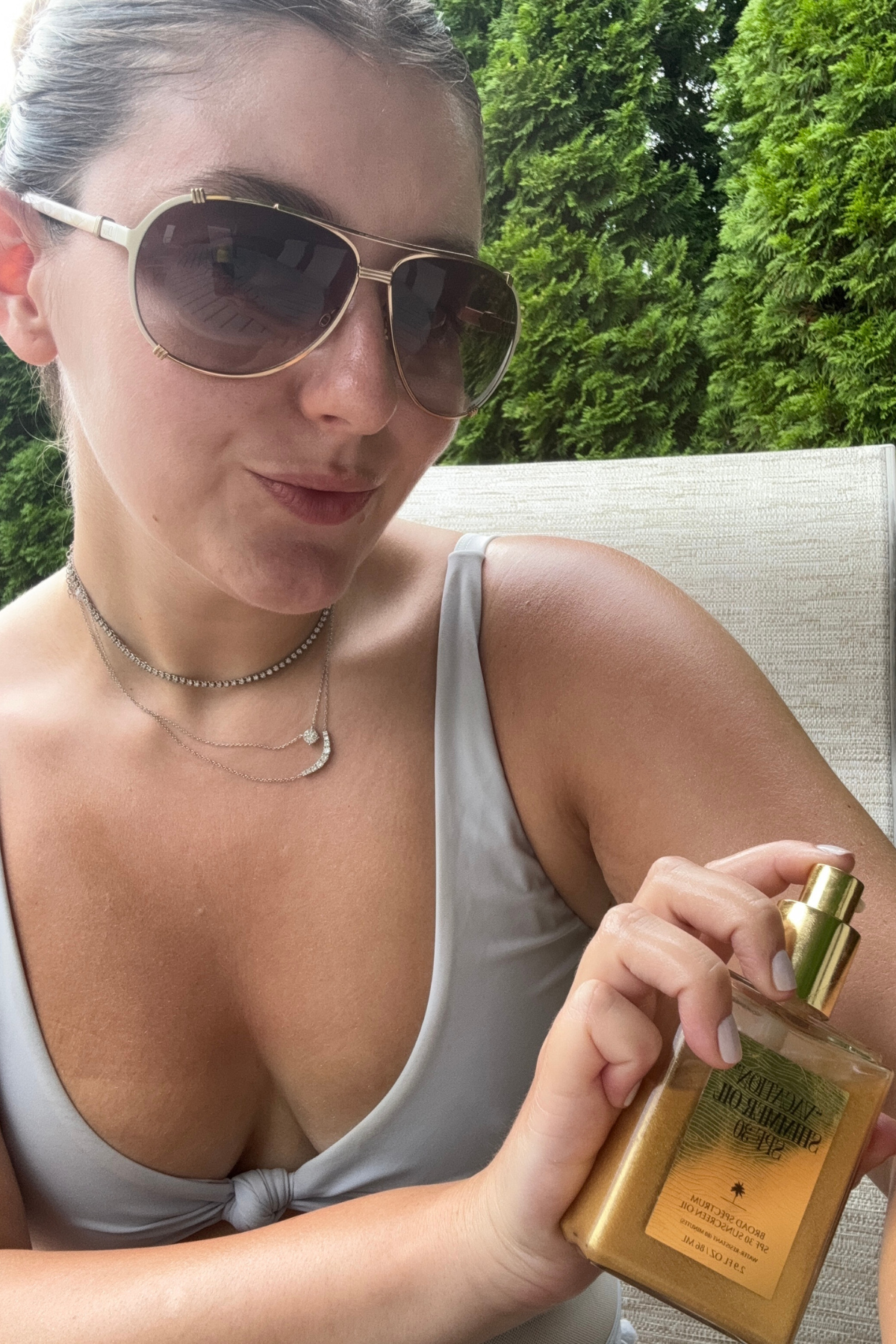
Don't just use this SPF for a beach day—it doubles as body glow for a night out.
Also Recommended
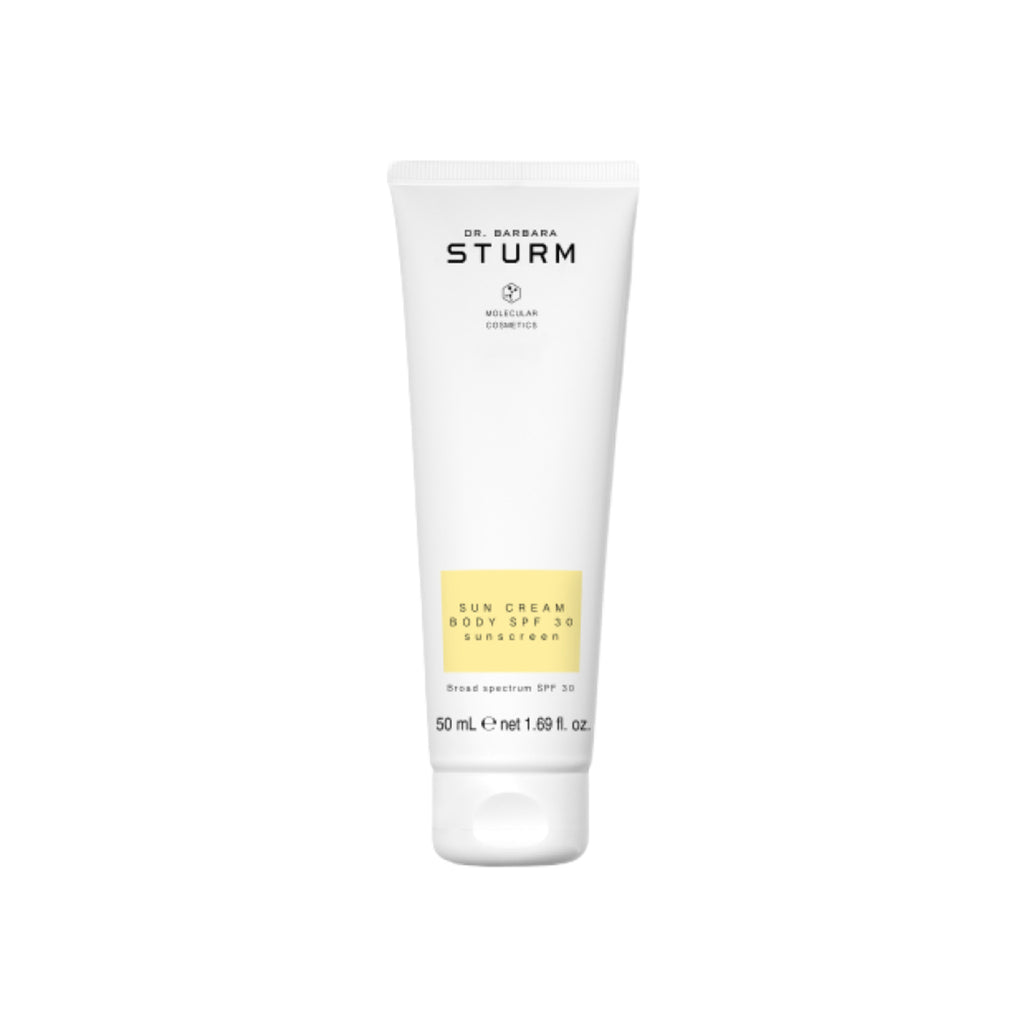
While I love the Dr. Barbara Sturm Sun Drops for the face, don’t sleep on the brand’s body sunscreen either. It’s one of Style Director Sara Holzman’s favorites. “I’m a huge fan of all things Barbara Sutrm but I especially love the SPF. It’s a luxurious, lightweight sunscreen that also really nourishes and hydrates my skin. It leaves my complexion glowing (and well-protected) without feeling greasy,” she says.
What We Love: Soothes sensitive skin; provides environmental protection against free radicals; deeply hydrating; firms skin
What We Don’t: High price point
SPF: 30
Type: Chemical
Active Ingredients: Octisalate 5 percent, Octocrylene 9.5 percent
Color: White
Texture: Lotion
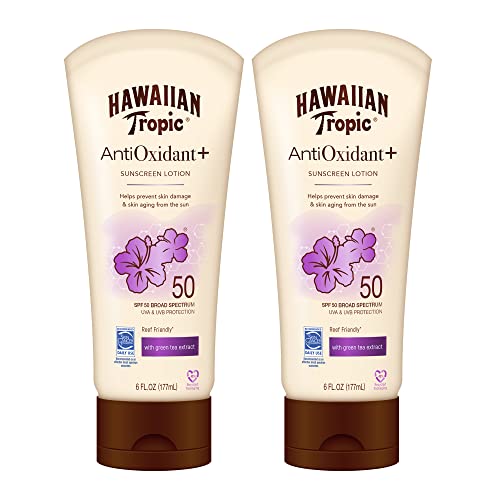
With an affordable price point and powerful, antioxidant formula, scooping up this sunscreen ahead of summer is a no-brainer. In addition to all the usual pros (UV ray protection, hydration, lightweight), we also love that this bottle is made of 45 percent recycled materials.
What We Love: Affordable and accessible; provides antioxidant protection; bottle made of 45 percent recycled materials
What We Don’t: Very strong scent
SPF: 30
Type: Chemical
Active Ingredients: Avobenzone 2.2 percent, Homosalate 7 percent, Octocrylene 4.2 percent
Color: White
Texture: Lotion
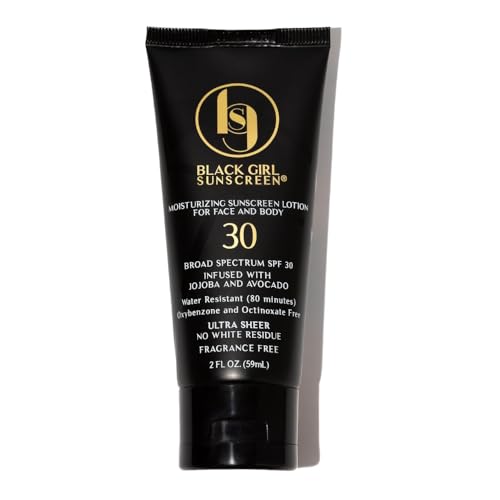
Specifically formulated for more melanated skin, this SPF leaves no white cast. This option has EWG approval and an elegant formula, and it's also packed with moisturizing ingredients like avocado and jojoba. It rubs in with ease—and, as an added bonus, can be used on the face or body.
What We Love: No white cast; EWG approved; moisturizing ingredients; fragrance-free
What We Don’t: Some say it feels a bit greasy
SPF: 30
Type: Chemical
Active Ingredients: Avobenzone 3 percent, Homosalate 10 percent, Octisalate 5 percent, Octocrylene 2.75 percent
Color: Sheer
Texture: Lotion
What to Look For in Sunscreen
- Chemical vs Mineral Sunscreen
“The best sunscreen is the one you’re going to wear every day,” says Dr. Levin. And while something is always better than nothing, there are few factors to consider when deciding between a chemical and mineral formula. The primary difference between the two is that mineral sunscreen, which is typically formulated with zinc oxide or titanium dioxide, primarily absorbs UV radiation, whereas chemical sunscreen will primarily reflect and scatter UV light, explains Dr. Boakye.
Mineral sunscreen is typically recommended for those with super sensitive skin and babies, as certain ingredients in chemical sunscreen can cause irritation or allergies. That said, chemical sunscreen isn’t dangerous by any means and is less likely to leave a white cast. “There’s a lot of fear-mongering against chemical sunscreens, but not all chemicals are bad. Even water is a chemical,” explains Dr. Levin.
- Formula for Your Skin Type
Thanks to dozens of elegant formulas, everyone can find an SPF that works for them. That said, Dr. Boakye suggests that anyone with acne or oily skin look for oil-free and non-comedogenic formulas; dry skin types look for sunscreens packed with hydrating ingredients like ceramides or hyaluronic acid; and rosacea patients search out dimethicone formulations. (Doctor’s note: Children under six months should not wear sunscreen.)
- Kid-Friendly Formulas
"Sunscreen (and overall sun protection) is important at all ages, but especially in childhood when skin can be more sensitive and easier to burn," explains board-certified dermatologist Dr. Laura Scott. "When looking for a kids sunscreen, it's important to choose an SPF of at least 30 that is labeled as broad-spectrum (meaning it protects from both UVA and UVB rays) and ideally water resistant."
While a handful of options fit the bill, Dr. Scott is particularly fond of Sun Bumb for little ones. "If they have sensitive skin, choose a mineral option like Baby Bum mineral sunscreen for your youngest," she says. "For the more active and adventurous kids, try Sun Bum’s new Kids SPF collection that is clear, water-resistant and made for both wet and dry skin application."
Why Do I Need Sunscreen?
Not only is sunscreen the best defense against skin cancer, but it's also your best bet for preventing signs of aging like sun spots, skin sagging, and wrinkles. “Sunscreens contain active ingredients that help protect the skin from the sun’s ultraviolet radiation,” explains Dr. Levin, founder of Entiére Dermatology. “Ultraviolet B (UVB) rays cause the most damage to the skin. Those are the rays that cause burning. Ultraviolet A (UVA) is a wavelength that actually goes deeper into the skin and causes skin aging.” As such, layering on an appropriate amount of sunscreen (and reapplying regularly) helps to reflect and absorb the sun’s harmful rays.
But putting on SPF isn’t an activity reserved for beach days or tanning sessions. It should be done every, single day—no matter the weather. Dr. Levin explains that the sun’s rays can penetrate through car windows and clouds.
It’s also important to note that those with darker skin tones need to wear sunscreen too. Just because your skin is less likely to burn, doesn't mean you're immune to the sun's rays. Dr. Boakye explains that sunlight causes decent chunks of hyperpigmentation in people of color. “Hyperpigmentation can be seen in a variety of skin conditions such as acne, eczema, and psoriasis. As a result, I strongly recommend wearing sunscreen,” she adds.
How Much Sunscreen Do I Need to Apply?
In short: a lot. “I tell my patients a half a teaspoon for the face and the neck combined and a whole shot-glass full (1 oz) for the body,” says Dr. Levin. An easy hack for making sure you get the recommended amount on your face, is to coat the length of two fingers in sunscreen. If you use a foundation that has SPF, it's recommended that you layer sunscreen underneath as well. Chances are, you're not applying enough makeup to get the full protection.
As for the body? It’s easiest to judge the amount you’re applying with a liquid formula—spray sunscreens are a little trickier. To make sure you’re actually getting enough product on your arms, legs, and stomach, Dr. Levin suggests holding the bottle close to the skin during application. “Your sunscreen spray bottle is not perfume,” she says. “Apply it close to ensure you’re not missing spots and also make sure to rub it in.”
If you happen to be chasing around little ones with a stick formula, Dr. Scott recommends getting four passses across every section of exposed skin.
Do I Need to Reapply Sunscreen?
“It’s recommended to reapply every two hours to all sun-exposed areas,” explains Dr. Boakye. The active ingredients that offer protection can come off in the water, because of sweat, or simply expire with time. While it's easier to layer liquid when you’re fresh-faced, don’t use makeup as an excuse to skip reapplication. Dr. Levin recommends reaching for a compact or a powder formula that can easily be layered over your foundation.
How Do I Incorporate Sunscreen Into My Routine?
As a rule of thumb, sunscreen should be the final product in your skincare routine. Put all your other antioxidant facial serums (shoutout vitamin C) and body lotions on beforehand. There are no ingredients or products that can’t be used in tandem with sunscreen, but there are a few that make using SPF that much more important. Think: retinol, AHAs, and BHAs. “Anything that’s going to provide anti-aging benefits is turning over your skin cells faster, which then makes it more sensitive to the sun,” explains Dr. Levin.
Meet the Dermatologists
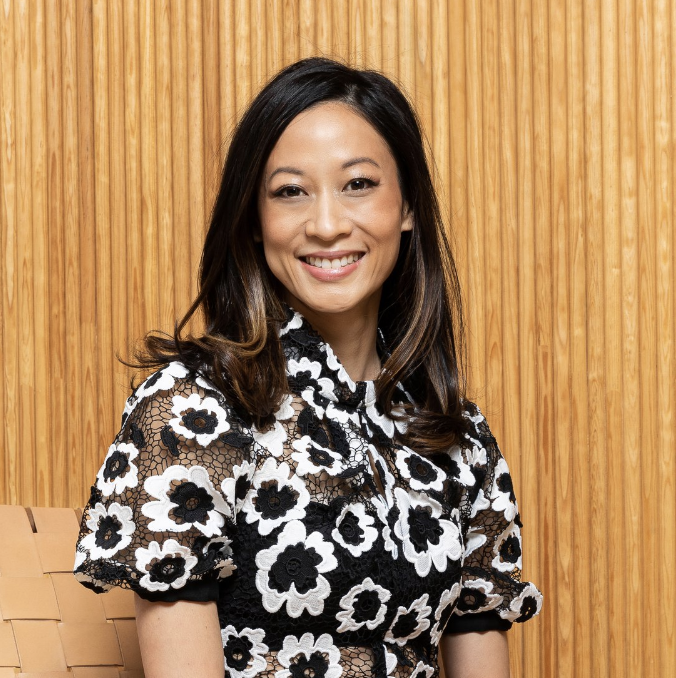
Known for her honesty and love for bespoke medical and cosmetic skin solutions, Dr. Levin has established a loyal following of patients from all walks of life - entire families, skincare enthusiasts, actors, designers, beauty editors, physicians, lawyers, teachers, and many more. As a native Californian, Dr. Levin graduated summa cum laude from the University of California of Los Angeles (UCLA) and earned her medical degree from the University of California of San Francisco (UCSF), as a member of the highest honor society, Alpha Omega Alpha. She completed her internship at the California Pacific Medical Center and dermatology residency at New York University Langone Health. As a clinical assistant professor at Mount Sinai Icahn School of Medicine, she is committed to contributing to the field of dermatology by teaching dermatology resident physicians and medical students, as well as serving as a reviewer for various scientific journals. She is a fellow of the American Academy of Dermatology, the American Society of Dermatologic Society, and the American Society for Laser Medicine and Surgery. She is a leading expert and speaker in facial rejuvenation, laser surgery, acne and rosacea. Dr. Levin has won awards and research grants for her research in laser surgery, acne, and global dermatology. Media knows expertise. Dr. Levin is frequently sought-after as a skincare and beauty expert, regularly contributing to major media outlets and consulting for skincare and beauty companies. Community is a passion for Dr. Levin. She has cared for patients, educated local health care providers, and performed clinical research in various international settings, including Thailand, Uganda, and Botswana. Dr. Levin serves as a member of the Skin Cancer Advisory Committee for Standing Voice, a non-profit organization focused on promoting the well-being of persons with albinism in Tanzania.

Dr. Naana Boayke and every aspect of her work is driven by a simple philosophy: Radiant skin is a lifestyle. She takes an inside-out approach to healthy skin, and believes diet, exercise, mindfulness and overall wellness all play a role in achieving healthy, glowing skin. A practicing dermatologist who has treated more than 18,000 patients over the past 15 years, Dr. Boakye received her B.A. at Wellesley College, her M.P.H. from George Washington University and her M.D. from Temple University. She completed her dermatology residency at State University of New York Health Sciences Center in Brooklyn, New York, where she also served as Chief Resident. Dr. Boakye is affiliated with numerous professional societies including the American Academy of Dermatology, Skin of Color Society and the American Contact Dermatitis Society.
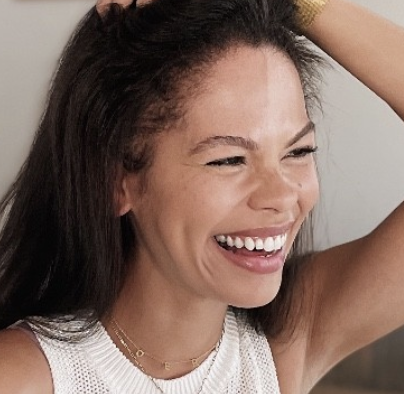
A Board Certified Dermatologist, Dr. Laura Scott take care of all skin conditions from infants to elderly. She has a special passion in skin of color care and making dermatology and the skin care industry more equitable. She consults for skincare brands and startups including MELE, Lion Pose, Versed, and Replenix.
Get exclusive access to fashion and beauty trends, hot-off-the-press celebrity news, and more.
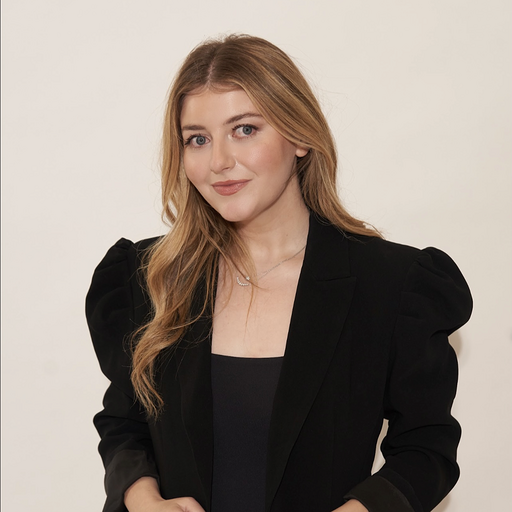
Samantha Holender is the Senior Beauty Editor at Marie Claire, where she reports on the best new launches, dives into the science behind skincare, and shares the breakdown on the latest and greatest trends in the beauty space. She's studied up on every ingredient you'll find on INCI list and is constantly in search of the world's glowiest makeup products. She's constantly tracking the biggest nail and hair trends to pop up in the beauty space, going backstage during fashion weeks, tracking celebrity looks, and constantly talking to celebrity hair stylists, nail artists, and makeup artists. Prior to joining the team, she worked as Us Weekly’s Beauty and Style Editor, where she stayed on the pulse of pop culture and broke down celebrity beauty routines, hair transformations, and red carpet looks. Her words have also appeared on Popsugar, Makeup.com, Skincare.com, Delish.com, and Philadelphia Wedding. Samantha also serves as a board member for the American Society of Magazine Editors (ASME). She first joined the organization in 2018, when she worked as an editorial intern at Food Network Magazine and Pioneer Woman Magazine. Samantha has a degree in Journalism and Mass Communications from The George Washington University’s School of Media and Public Affairs. While at GWU, she was a founding member of the school’s HerCampus chapter and served as its President for four years. When she’s not deep in the beauty closet or swatching eyeshadows, you can find her obsessing over Real Housewives and all things Bravo. Keep up with her on Instagram @samholender.